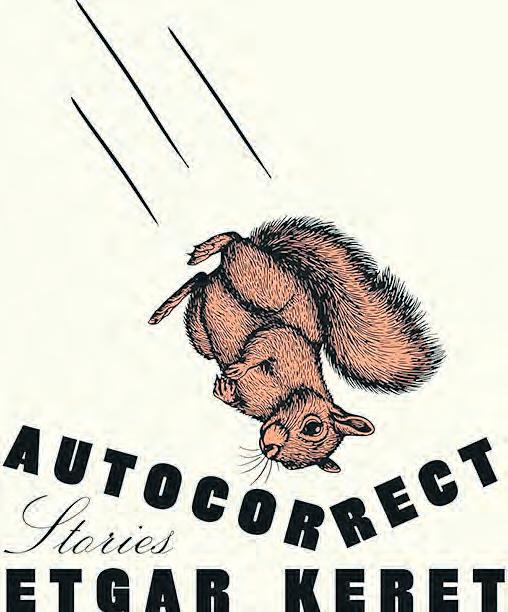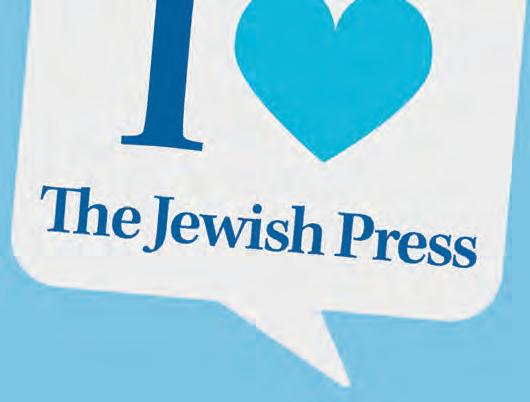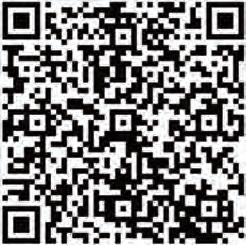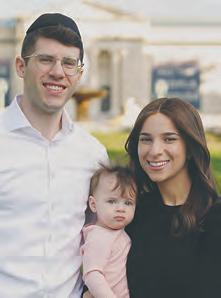

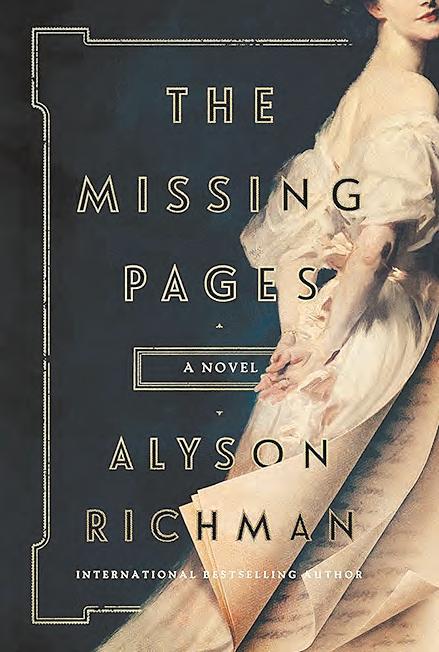




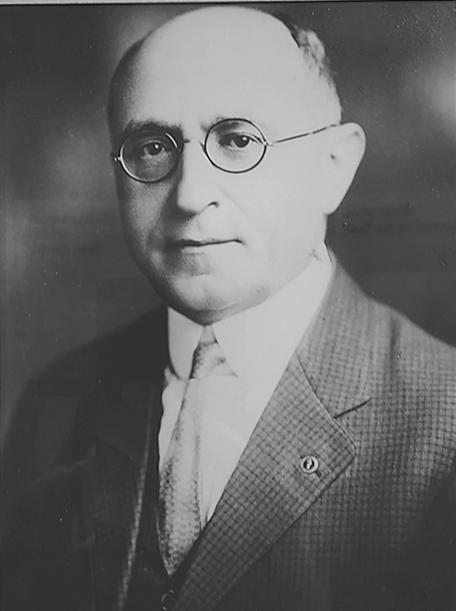
MARTY RICKS
NJHS Advisory Board Member
When Omaha’s young Jewish Federation faced one of its first great tests, a quiet, steady physician stepped forward to lead.
Dr. Philip Sher finished the term of the late Morris Levy in 1923 and returned to the presidency six years later. He guided the community through years of change with the same compassion and discipline that defined his medical career.
Born in Pumpian, Lithuania, in 1875, Sher studied in the famed Seminary of Telz and was ordained a rabbi at eighteen. Yet even then, his calling was medicine. He came to America to join his family in Pennsylvania and entered Jefferson Medical School before transferring to Baltimore University Medical
Growing up in 1960’s Omaha, if you told your folks you were going “up to Bagel” they knew exactly where you’d be. They knew the kids you’d likely be hanging out with from JE George Blvd to 69th Street. They knew precisely which houses to call between Western & Underwood Avenues—gravel roads back then—to get a GPS-exact location on you. For the kids who grew up there, this chapter of their history left an indelible mark. A mark so powerful that later in life, after hav-
College, where he earned his degree in 1902. When his father offered him a business salary to stay in Philadelphia, Sher declined, saying he had studied medicine “not for the purpose of making money but to render service to humanity.” That conviction shaped the rest of his life.
In 1903 he arrived in Omaha for reasons no one ever quite recorded and opened a modest practice that soon became a fixture of the city’s medical community. He joined the staff of Wise Memorial Hospital, the Federation supported institution that would later become part of the backbone of Jewish healthcare in Omaha, and eventually served as its president. His practice reflected his values: the wealthy paid full price, See Federation presidents page 2
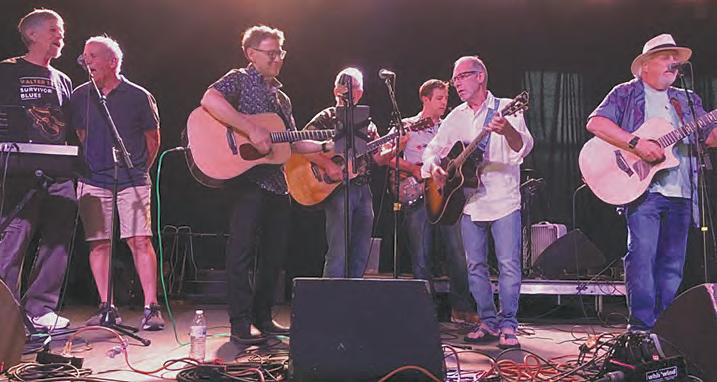
ing moved away, after lives lived, friends lost, and families raised, they would reconnect and slowly (and unconsciously) resurrected that soulful, little patch of 1960’s geography in the form of a rock band: The Bagel Boys. If you’ve seen them play, you know the vibe. They aren’t a mere cover band. They don’t have a gimmick. They just have each other. When they
assemble behind their respective instruments (a lot of guitars!), they become the living embodiment of a bustling, joyful Jewish neighborhood from a simpler time when the world was smaller and the neighborhoods tighter. Listening to them strum and plunk The Beatles or Jackson Browne or Santana or Billy Joel (keyboard!), See Bagel Boys page 3
There is something magical about seeing a huge Menorah glowing against the winter sky. It feels ancient and modern at the same time, rooted in Jewish history but completely alive in the world we live in today.
Public Menorah lightings were not always part of the landscape. In the 1970s the Rebbe began teaching that Hanukkah carries a universal message. Light does not belong indoors. It is meant to shine outward. The miracle of the oil is not just a Jewish story. It is a human story about hope, goodness and the power of one tiny flame to push away a whole room of darkness.
The Rebbe reminded us that a little light can change an entire environment. So why hide it? Why not take the Menorah into the heart of our cities, universities, state capitols, parks and public squares? And so began the modern movement of public Menorah lightings. Today they take place in more than one hundred countries, from busy plazas in New York City to quiet corners of small towns in the Midwest. The message is always the same. Light belongs to everyone. And each of us has the ability to add more of it.
This year in Omaha we are not just adding light, we are starting traditions, celebrating as a community and inviting every person, young and old, Jewish and not Jewish, to be part of the glow. Hanukkah 5786 is going to be unforgettable.
Here is what is coming your way.
Sunday Night, Dec. 14 at 5 p.m.: Hanukkah Kickoff at Stinson Park
The annual celebration returns, bigger and brighter. This year’s special feature will be a full balloon Menorah that will rise as the sun sets. We will have balloon artists twisting creations for the kids, a bubble machine filling the plaza with magic, and our famous latke truck rolling in hot and ready. Music, menorah, community and pure joy. It is the perfect way to launch the Festival of Lights.
Tuesday, Dec. 16, 4 to 8 p.m.: Hanukkah Skate Night at Heartwood Preserve
Welcome to what will quickly become another Omaha tradition. We are taking over the Heartwood pop up winter rink for a full four hour Hanukkah party. To reserve your skating time just email the rink at See Hanukkah in Omaha page 2
Continued from page 1







the posted address. You do not need to be an ice skater to have a great time. There will be Israeli donuts, the latke truck, hot cocoa stations, crafts for all ages and the debut of our ice sculptured Menorah. When the sculptor finishes, we will light it together. Watching a Menorah emerge from a block of ice is a sight you will not forget.
Wednesday, Dec. 17: Chabad Takes Lincoln
Our Nebraska tradition continues as we join Governor Pillen for the annual Menorah lighting at the State Capitol. We invite the entire community to be there with us. Students at UNL will get their turn at the latke truck, too. This event is always a moment of real pride. Standing on the steps of the Capitol and watching the flames rise feels like a message straight from ancient Jerusalem to modern Nebraska. Light wins.
Friday, Dec. 19: Hanukkah at Heritage with Ms. Nancy Rips
One of the most heartwarming celebrations of the whole week. We are bringing the Menorah, gelt, music and of course the latke truck to Heritage. If you are lucky, you will catch live music too. It is a celebration filled with warmth, smiles and connection. A true highlight of the season.
Saturday, Dec. 20: YJP Hanukkah After Shabbat
It is time for the Young Jewish Professionals to have their own night to shine. After Shabbat we will gather for a special Hanukkah celebration filled with the kind of energy only a YJP crowd can bring. Food, music, friends and pride in who we are.
Sunday Night, Dec. 21: The Great Menorah Car Parade
We are finishing Hanukkah off with a bang. Join us as we parade across the city with lit Menorahs mounted on our cars. It is one of the most joyous, uplifting and proudly Jewish moments of the year. If you have never been in the parade, make this the year. If you have done it before, you know there is nothing like it.
Hanukkah is the time to step fully into our Jewish pride,

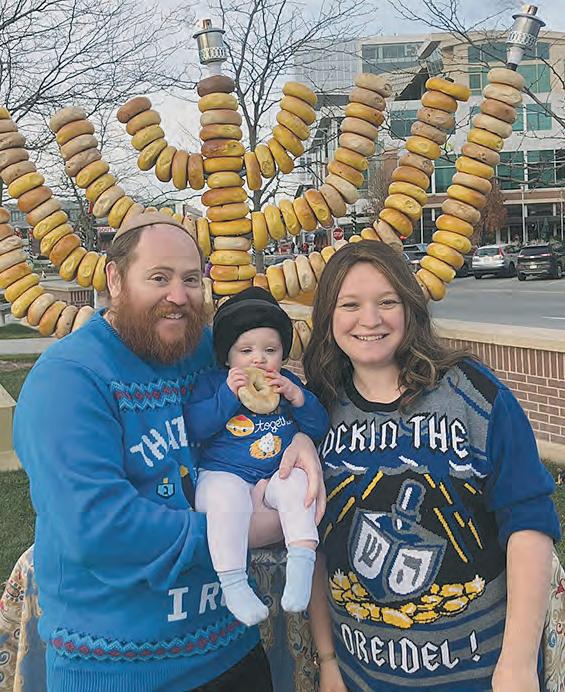
loud and proud. This year choose to do something more than you have in the past. The world needs it. Your neshama needs it. Your family needs it.
And if you are having a hard time choosing which celebration to attend, we have consultants standing by to help you figure it out. You can also be brave and just come to all of them.
Hanukkah 5786 is going to be the one your family talks about for years to come.
Let’s fill Omaha with light.
‘Write With Us,’ our small and intimate writing workshop (no need to be nervous) continues in the winter and early spring. Upcoming workshops are scheduled for the following Thursdays: Jan. 29, Feb. 26, March 26 and April 30 from 5-7 p.m. in the Noshery at the Staenberg Omaha JCC. Register by contacting Jessi at jtaylor@jewishomaha.org or Annette at avandekamp@jewishomaha.org. There is no cost to attend, although donations are always welcome.
If you have wanted to write your family’s story, that great American novel, or you have always wanted to try your hand at poetry, join us! Maybe you are already an accomplished writer, but you would benefit from being in a room with other writers. Perhaps you have convinced yourself you can’t write at all, but would love to try. Everyone, from absolute beginner to professional, is welcome to attend. We will provide the kosher snacks and the writing prompts.
Continued from page 1 the middle class half, and for the poor, there was no charge at all. He believed everyone deserved care and dignity.
Dr. Sher married Rebecca Saxe of Philadelphia in 1904, and together they built a life devoted to family and service. Their son David grew up to become a prominent attorney in New York City, continuing the family’s commitment to learning and civic engagement.
Beyond his medical career, Dr. Sher was a tireless advocate for justice and youth. He attended sessions of Juvenile Court simply to support young people in trouble and was appointed Nebraska’s representative to the National Prison Conference in 1911. He later chaired the National Probation and Parole Association, blending his rabbinic grounding in ethics with a physician’s instinct for care. Yet within Omaha’s Jewish community, he was best known as a founder, builder, and visionary. He helped establish the Jewish Press Publishing Company in 1920, which endures today as the Omaha Jewish Press, a Federation agency and a living record of the community he helped create.
When the Federation honored him on his 70th birthday in 1945, they described him as “a faithful and fearless champion of all that is good… a physician whose warmth of heart and breadth of spirit has brought health and comfort to the sick, the poor, and the needy.” Those words were not ceremonial; they captured the essence of the man.
In Dr. Sher’s time, organizations such as the Jewish Press Publishing Company, the City Talmud Torah, and the Free Loan Society met the community’s most pressing needs. Though those early efforts no longer exist in the same form, their purpose and spirit live on in the modern Federation agencies that continue their work, including the Jewish Press, Jewish Family Service, Friedel Jewish Academy, and the JCC.
Together these institutions still bear the imprint of his leadership and his belief that a strong community must care, educate, and connect.
In 1948 the community built a new home for its elderly and named it the Dr. Philip Sher Home for the Aged, not for a gift he gave, but for a life he lived in service. That home would evolve into today’s Rose Blumkin Jewish Home, standing as a tangible continuation of Sher’s vision that the strength of a community is measured by how it cares for its elders.
Dr. Sher died in 1963 and was laid to rest at Mount Sinai Cemetery. In the traditional Orthodox manner, he and his wife Rebecca rest head to toe, still connected, still facing forward together. In his final years, he resided at the home that bore his name, surrounded by the very values he had championed. More than a century after his arrival, Omaha’s Jewish community still benefits from the institutions he helped build and the moral architecture he left behind.
Those who lead today, in the Federation, our synagogues, schools, and agencies, stand, quite literally, on the shoulders of Dr. Philip Sher.
For those who wish to learn more about his life and legacy, the Nebraska Jewish Historical Society houses his autobiography, From the Diary of Doctor Sher, along with personal papers and photographs that bring his story to life. A visit to the NJHS office at the Jewish Community Center offers a glimpse into the heart and mind of a man whose service helped shape Jewish Omaha.
The Jewish Federation of Omaha past presidents series is a collaboration between The Nebraska Jewish Historical Society (NJHS) and the Jewish Press. For questions and/or more information about the NJHS, please contact executive director Jane Rips at jrips@jewishomaha.org, or visit the website at nebraskajhs.com.
Busy lives and schedules provoked a move to the Midwest for Talia and Menachem Manevich, and their adorable, nearly oneyear-old daughter, Rikki. Talia, a registered nurse, was working at University of Maryland Hospital in Baltimore. Menachem, who owns and operates MM Productions, a wedding band company, was also studying full time at Ner Israel Yeshiva. They were looking for a pause in their daily routines and a way to give back meaningfully.
Deciding they wanted to find a way to temporarily step away, connect with new people, and give back, Menachem called his long-time friend, Rabbi Mordechai Geiger, asking if he had any ideas of what they might consider. In a true example of beshert, Rabbi Geiger shared that Beth Israel was looking to fill a newly created position of programming and outreach coordinator. Deciding on a short-term gig, the Manevich family soon found themselves on their way to Omaha, arriving in time for Simcha Torah.

“I was delighted to have the opportunity to welcome the Manevich’s to Omaha,” shares Rabbi Geiger. “Menachem and Talia bring a powerful combination of professionalism and energy, blending right in with the vibrant Beth Israel culture.”
The couple hit the ground running and quickly developed new offerings for the shul, all open to the community. Talia has been leading a four-week series titled The Secret to Jewish Femininity discussing what is special about being a woman. With limited space available, the slots filled quickly. On Nov. 16, a Tap Room Social, hosted by Hailey Krueger and Alex Ronen, was held at Brickway Brewery in the Old Market.
Current programs include the weekly Shabbos Café, led by Menachem at 8:30 a.m. on Shabbat mornings. Described as an intro to meaningful prayer with artisan coffee, the class utilizes the book “Rav Shwab on Prayer.” The couple has also organized Friday Night Onegs, which are scheduled for Dec. 5 and 26, with snacks, drinks, at the home of Rabbi and Ayelet Geiger. Each will begin at 7:30 p.m. Special Hanukkah programming is being finalized plus other events to be announced soon.
"The community here has been so welcoming and supportive,” commented Talia. “We are looking forward to our upcoming programming."
To stay up-to-date on all Beth Israel happenings, contact the synagogue office at 402.556.6288 or bethisrael@ortho doxomaha.org to be added to the weekly email list.
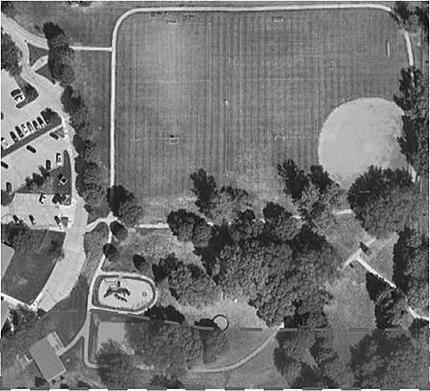
Continued from page 1
you can faintly hear gravel crunching beneath the scrambling of Converse sneakers making trouble.
The Bagel Boys have always been comprised of a large, revolving group of friends—at its core: Tom Friedman (guitar/vocals), Mark “Sharky” Sanford (keyboard/vocals), David Kutler (guitar/vocals), the late Barry “Hound Dog” Engel (guitar/vocals), Mark Kutler (guitar/vocals), Michael “Musk” Muskin (guitar/vocals), Bob Meyerson (vocals), Ross Margolin (guitar/harmonica/vocals), Jay Margolin (bass guitar/vocals), JJ Friedman (guitar/banjo/vocals).
Arguably, however, the most important and influential Bagel Boy is Jay Parsow.
Expansion of the existing JCC Pavilion will begin mid-November. During this time the southernmost portion of the walking trail (located on the eastern edge of our campus) will be closed. The start date of this project was Wednesday, Nov. 19. The closure is expected to last until late spring of 2026. The impacted area will be a strip that begins at the curb near the Pavilion and extends back to the eastern property line. This area has been blocked off with construction fence. We kindly ask that all members and visitors refrain from entering any of the blocked-off areas.
OPEN
Playground, Northern portion of the walking path, Soccer field, Baseball field, Ring Road, all ELC access points and east gate access point.
CLOSED
Existing pavilion, southern-most portion of the walking path and sand volleyball court.
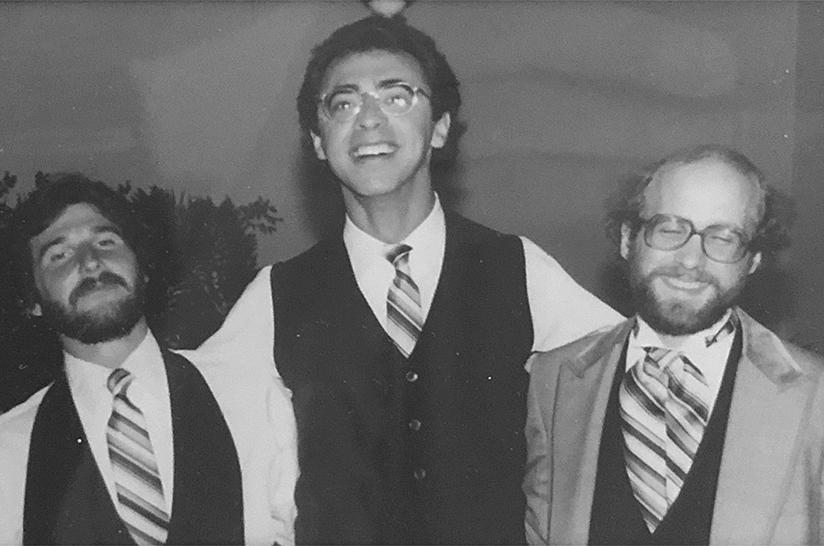
Jay was a loving husband, father, son and brother, a gifted physician, and a great friend. His passing in 2001 was a blow to all who knew him, but what no one could have foreseen was the catalyst Jay would become for all the boys from Bagel. After reconnecting at the funeral, the core group of friends (some of whom met at Beth El Synagague Nursery School in 1959) resolved to stay connected, meeting the next year at Copper Mountain for the first Jay Parsow Memorial Ski Trip. A few years later, a few more friends joined adding some informal jam sessions to celebrate the life of their friend. This led to an even larger group—no longer a “boys only” trip— now including their families—filling conference halls with food, friends, and most importantly… music.
Although music had been present in their lives early on in Bagel—Mark Sanford, David and Mark Kutler, and Barry Engel formed the The AsparaGuys, playing sock hops in their early


teens—it wasn’t until these annual life-affirming trips remembering their friend Jay that music would truly reveal its importance in every aspect of their lives. It would teach them the importance of using time wisely to connect with others. Every time the Bagel Boys play, whether in one of their basements or at a public concert, Jay’s life is memorialized by love and music and community. His life not defined by his all-tooearly passing, but by a seed that life planted for countless others. A seed that reunited the boys from Bagel and, subsequently, invited us back there, too. Because every time they play—no matter how old the boys get—they are right, smack, back in Bagel in the 60s. And we get to be right there with them.
Join the Bagel Boys at B’nai Israel Living History Synagogue, 618 Mynster Street, Council Bluffs, IA on Dec. 12 for a preHanukkah celebration after 7:30 p.m. Shabbat Service.

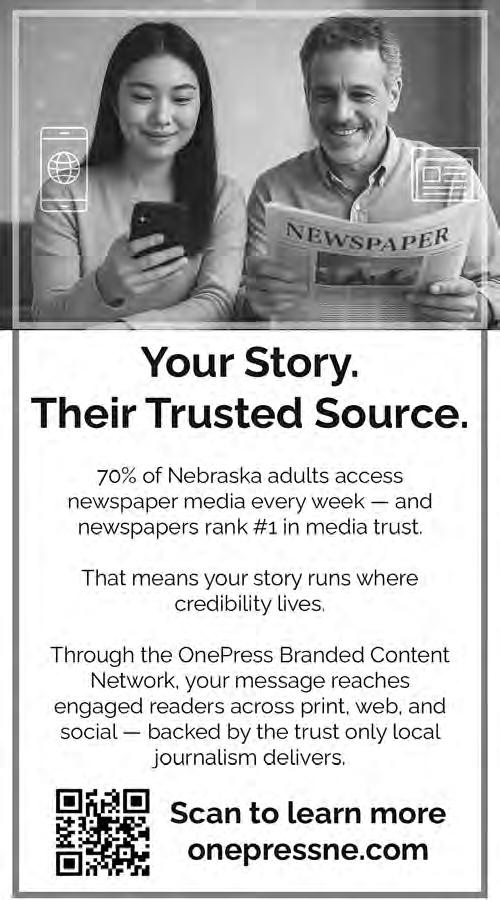
SETH SCHUCHMAN
In Nebraska, basketball may not shake the earth the way football does, but step into any small-town gym on a winter night and you’ll feel the same pulse, the same hope, tension, and joy. The sound of sneakers squeaking across a hardwood floor, the sharp whistle of a pass, the whole place holding its breath as the ball arcs toward the hoop. It’s a game of timing, teamwork, and intelligence, qualities that have long resonated within Jewish life and history.
When I was in high school, Monday nights meant pickup basketball at the Tifereth Israel gym, organized by our Rabbi at the time, Ethan Siedel. The games were fun and competitive, a mix of layups, laughter, and light trash talk. One night I joked with him, “Rabbi, I never see most of these guys in synagogue. Are they even Jewish?” He grinned and shot back, “A few are. Just not the best ones.” That exchange stayed with me. It made me wonder who the great Jewish basketball players really were.
The more I looked, the more I realized how deeply Jewish players helped shape the game itself, from the immigrant playgrounds of New York to the modern global stage.
The story begins with Nat Holman, born Nathan Helmanowich to Russian Jewish immigrants on New York’s Lower East Side in 1896. Holman was one of the sport’s earliest stars, a magician with the ball who played for the Original Celtics in the 1920s. Later, as head coach of City College of New York, he guided his team to an unmatched feat, winning both the NIT and NCAA championships in 1950. Holman’s style reflected the neighborhoods that created him: fast passing, unselfish play, and intellect over brute force.

A few decades later, another Brooklyn-born son of Jewish immigrants changed basketball forever. Red Auerbach, born Arnold Auerbach in 1917 to Russian Jewish parents, became the architect of the Boston Celtics dynasty. Coaching the Celtics from 1950 to 1966, he won nine NBA championships and added seven more as general manager and president. Auerbach broke barriers by drafting the league’s first African American player, signing its first all-Black starting lineup, and later naming Bill Russell as the NBA’s first Black head coach. His trademark victory cigar became part of basketball folklore, but his real legacy was leadership built on loyalty, intellect, and courage, a Jewish coach from Brooklyn who used teamwork to transform the sport.
Next came Red Holzman, born in 1920 to Romanian and Russian Jewish immigrants, another Brooklyn native who rose from player to Hall of Fame coach. After a brief career as a guard, Holzman took over the New York Knicks and led them to championships in 1970 and 1973. His teams were known for their chemistry and unselfishness, a style of play that mirrored the values of community and cooperation. Holzman taught that the best basketball was a shared language, a collective rhythm, something greater than any one player.
Dolph Schayes carried those same values onto the court. Born in 1928 in the Bronx to Romanian Jewish immigrants, he became one of the NBA’s first great forwards, playing from 1948 to 1964 with the Syracuse Nationals and later the Philadelphia 76ers. A twelve-time All-Star and NBA champion in 1955, Schayes was known for his toughness, intelligence, and consistency. His son, Danny Schayes, continued the legacy, playing eighteen seasons in the NBA. Together, they became basketball’s first Jewish father and son dynasty, connecting the game’s early immigrant roots to its modern professional era. From the same borough that produced Auerbach and Holzman came Larry Brown, born in Brooklyn in 1940. Brown

starred at the University of North Carolina and earned a gold medal with the 1964 U.S. Olympic team before turning to coaching. He became the only person ever to win both an NCAA championship with Kansas in 1988 and an NBA title with the Detroit Pistons in 2004. Brown’s demanding, detaildriven style reflected a lifetime of study and devotion to improvement, traits that echo the Jewish tradition of learning and discipline.
In the next generation, Sue Bird, born in 1980 on Long Island, emerged as one of the greatest basketball players in history. Her father’s family was Russian-Jewish, and though she identifies more culturally than religiously, she’s widely recognized as part of the Jewish sporting tradition. A five-time Olympic gold medalist, four-time WNBA champion with the Seattle Storm, and the league’s all-time assists leader, Bird played the game with a calm intelligence that made her a coach on the floor and a role model far beyond it. She even appeared on the cover of Time magazine as one of the most influential athletes in the world, a reflection of both her talent and her leadership.
Jordan Farmar, born in 1986, grew up in Los Angeles with a Jewish mother. He attended Hebrew school, celebrated his Bar Mitzvah, and later starred at UCLA. Drafted by the Los Angeles Lakers in 2006, he went on to win two NBA championships in 2009 and 2010. Farmar’s story offered a model for Jewish identity and pride in the global, media-saturated world of modern basketball.
Abby Meyers, born in 1999, represents the newest generation. A standout guard at Princeton University and the University of Maryland, she became a WNBA draft pick in 2023 and earned the nickname “The Jewish Jordan” for her combination of skill, energy, and leadership. Meyers openly embraces her heritage and sees it as a source of pride and connection. Her rise shows that Jewish basketball has a bright


and inclusive future.
And then there is Amar’e Stoudemire, born in 1982, whose path into Judaism was spiritual rather than ancestral. Raised Baptist, he was told by his mother that their family descended from the lost tribes of Israel. That revelation led him to study Torah, formally convert to Judaism, and make aliyah to Israel. A six-time NBA All-Star with the Phoenix Suns and New York Knicks, Stoudemire later played for Hapoel Jerusalem and Maccabi Tel Aviv before becoming an Israeli citizen. His conversion was sincere, studied, and public, bridging cultures and generations and proving that Jewish identity in basketball is as much about soul as it is about lineage.
Here in Omaha, the story came full circle through Johnny Rosenblatt, who grew up in our own Jewish community and was best known later in life for baseball and for the stadium that bears his name. Long before that, though, he was an outstanding basketball player. A standout athlete at Omaha Central and later at Creighton University in the 1930s, Rosenblatt was known as much for his leadership as his jump shot. His path from a Jewish kid in North Omaha’s gyms to the city’s mayor shows how those same values of teamwork, resilience, and pride played out right here at home. And in a way, it reminds us that the legacy of Jewish basketball isn’t just found in the record books, but in the stories, pickup games, and friendships that still echo in gyms across Nebraska.
Across eras, these figures shared something deeper than skill. From Holman’s precision to Auerbach’s innovation, from Holzman’s teamwork to Schayes’s grit, from Brown’s relentless teaching to Bird’s poise, from Farmar’s confidence to Meyers’s spirit, from Stoudemire’s faith to Rosenblatt’s civic pride, each wove Jewish values into the fabric of the game. They turned basketball into more than sport, a living metaphor for heritage, perseverance, and community. Like faith, basketball is passed down, from teacher to student, parent to child, generation to generation. You learn how to move, how to see the court, how to trust your team. That’s the real legacy these players left behind, not just points or trophies, but a way of playing and living that honors where we come from and reminds us to keep passing it on.
Special thanks to the Nebraska Jewish Historical Society for preserving the stories of Jewish athletes in our community. If you know of other Jewish basketball players with Nebraska roots, please contact the NJHS so their stories can be remembered and shared.
Information for this article was drawn from:Naismith Memorial Basketball Hall of Fame; NBA.com; WNBA.com; Jewish Virtual Library; Times of Israel; The Forward; Jerusalem Post; City College of New York archives; University of North Carolina Athletics; UCLA Athletics; University of Maryland Athletics; Boston Celtics, Detroit Pistons, Philadelphia 76ers, and Creighton University official sites; Syracuse Nationals historical archives; Wikipedia; and the Nebraska Jewish Historical Society.
B’NAI B’RITH BREADBREAKERS
The award-winning B’NAI B’RITH BREADBREAKERS speaker program currently meets Wednesdays via Zoom from noon to 1 p.m. Please watch our email for specific information concerning its thought-provoking, informative list of speakers. To be placed on the email list, contact Breadbreakers chair at gary.javitch@gmail.com

MARK KIRCHHOFF
JFO Community Engagement and Education
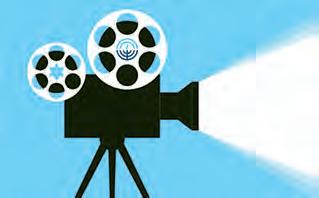
The curtain has closed on the 23rd Annual Omaha Jewish Film Festival, which ran from Nov. 9 through Nov. 12 at the Alan J. Levine Performing Arts Theater at the Staenberg Omaha JCC. This year’s festival marked a milestone for the community, drawing a record-setting crowd, averaging 73 attendees each night — the highest in the festival’s history. Over four evenings, audiences were treated to a diverse and engaging slate of films, each hosted by dedicated community members. From the comedic chaos of Bad Shabbos, hosted by Daniel Grossman, to the cultural exploration of Swedishkayt: Yidlife Crisis in Stockholm, hosted by David Finkelstein, followed by the lighthearted twists of Matchmaking2, hosted by Patty and Steve Nogg, and concluding with the deeply personal journey portrayed in The Property, hosted by Mary-Beth and Bruce Muskin, the festival offered something meaningful for everyone. Collectively, the films earned an impressive 3.6 out of 4 response rating, reflecting enthusiastic audience response and thoughtful post-film discussions. Daniel Grossman shared that “It was an honor to serve as a host. Bad Shabbos was certainly a humorous take on contemporary Jewish life.”
In addition to the films themselves, attendees enjoyed free popcorn, bottled water, and the chance to connect with fellow community members through lively conversation led by the hosts after each screening. “I was struck by the audience’s enthusiasm and their willingness to dive into the film’s themes,” said Daniel, who led the first night of the audience discussion. “I’m so grateful to have been a part of it.”
The Jewish Federation of Omaha extends heartfelt gratitude to the generous supporters who made the 2025 Omaha Jewish Film Festival possible: the Lois Jeanne Schrager Memorial Fund; the Fran and Rich Juro Endowment Fund for the Federation; the Etta and Harold Epstein Security Fund; the Ruth Frisch & Oscar S. Belzer Endowment Fund; the Special Donor-Advised Fund of the JFO Foundation; the Klutznick Custodial Fund; the Miller Film Fund by Lindsey Miller-Lerman in memory of Avy and Roberta Miller; B’nai B’rith Henry Monsky Lodge; and corporate sponsor First National Bank of Omaha. Bottled water was furnished by Ideal Pure Water. With record attendance, strong community engagement, and outstanding films, this year’s festival stands as one of the most successful yet — an inspiring celebration of storytelling, culture, and community.

CRYSTAL
RHOADES
Candidate for U.S. Congress, Nebraska’s 2nd District When I’m sworn into Congress, no one will fight harder to strengthen the U.S.–Israel relationship than I will. My support for Israel isn’t political, it’s moral. It’s grounded in my values and in what I’ve seen firsthand about the importance of dignity, freedom, and memory.
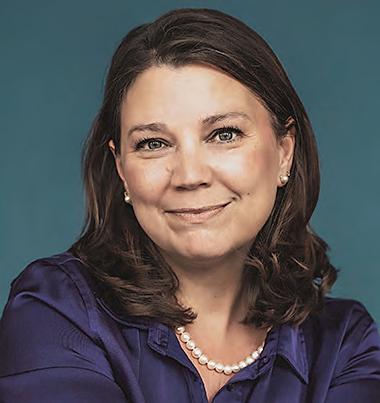
I grew up in Omaha, a working-class Catholic kid cleaning rooms in a nursing home. One of my residents was a Holocaust survivor. He explained to me what he had endured during the war. He hoarded food because even decades later, he couldn’t bear the thought of going hungry again. Before I left that job, he made me promise one thing: never forget.
I haven’t. That experience taught me what happens when the world turns its back on evil. It’s why I believe so deeply that Israel, the only democracy in the Middle East, the only place in the region where women, LGBTQ+ people, and religious minorities have rights, is not just an ally but a moral necessity.
As Democrats, we often talk about standing up for democracy and equality. But when it comes to Israel, too many have gone silent. I won’t. I will never bend my values to please a social-media mob. Leadership means saying what’s right, even when it’s unpopular.
I was studying terrorism in college when the 9/11 attacks occurred. So when Hamas attacked Israel on October 7, slaughtering innocent civilians, Jews, Muslims, and Christians alike, it was immediately clear to me that Hamas must be eradicated.
After 9/11, the United States spent two decades fighting global terrorism. We didn’t ask for permission to defend ourselves, and we shouldn’t hold Israel to a different standard. Hamas uses its own civilians as shields, turning neighborhoods into human traps to manipulate world opinion. Compassion for the people of Gaza must include recognizing who truly oppresses them: Hamas.
There’s a growing effort to separate “anti-Zionism” from antisemitism. But in practice, one often fuels the other. The idea that the world’s only Jewish state should not exist or should exist only under impossible conditions is inherently antisemitic.
Of course, it’s fair to criticize Israeli policies or leaders. That’s democracy. But it’s not fair to question Israel’s right to exist or to call for its destruction “from the river to the sea.” Such rhetoric crosses the line from protest to hate.
I will call it out every time. I support the International Holocaust Remembrance Alliance’s definition of antisemitism and would back legislation to ensure it guides our federal policy.
Failing to do so isn’t neutrality, it's a moral failure.
The United States and Israel share a bond rooted in democracy, innovation, and mutual security. The 2016 memorandum of understanding guarantees vital military assistance that protects both nations. These investments also create American jobs, from manufacturing Iron Dome components to advancing defense technology.
Our commitment shouldn’t depend on who leads either government at a given moment. Israel’s security is America’s security. Our alliance must remain bipartisan, consistent, and unshakeable.
Beyond defense, our economic partnership drives innovation — from clean energy and water desalination to medical technology and cybersecurity. Every day, Americans benefit from these joint breakthroughs. When the U.S. and Israel work together, the world becomes safer, smarter, and stronger. Iran remains the world’s leading sponsor of terrorism. Its nuclear ambitions threaten global stability, not just Israel. The United States must ensure Iran never develops a nuclear weapon, never gains the ability to weaponize enriched uranium, and never continues funding proxies like Hamas, Hezbollah, and the Houthis.
Now that there is a ceasefire, the U.S. must help secure a peaceful future for both Israelis and Palestinians. The Arab nations Egypt, Jordan, Qatar, and others must have skin in the game. The Palestinian people deserve self-determination, but not under Hamas. A lasting peace requires security guarantees for Israel, demilitarization, and accountability within the Palestinian Authority. The Abraham Accords proved that progress is possible when courage replaces fear. I believe the U.S. can help expand these agreements. That’s the path toward lasting regional stability. Peace will not come through appeasement or moral equivocation. It will come through strength, clarity, and the unwavering defense of democratic values.
For 75 years, Israel has been one of America’s closest allies. That bond must remain unbreakable. I will be a champion for Israel in Congress, clear, unapologetic, and steadfast. Because leadership isn’t about hedging. It’s about remembering what’s right, and never forgetting why.
Crystal Rhoades is a candidate for U.S. Congress in Nebraska’s 2nd District and a former Nebraska Public Service Commissioner.
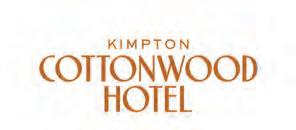










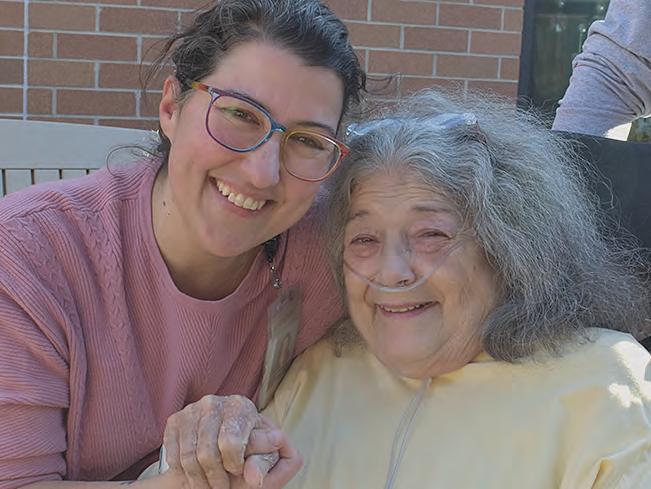
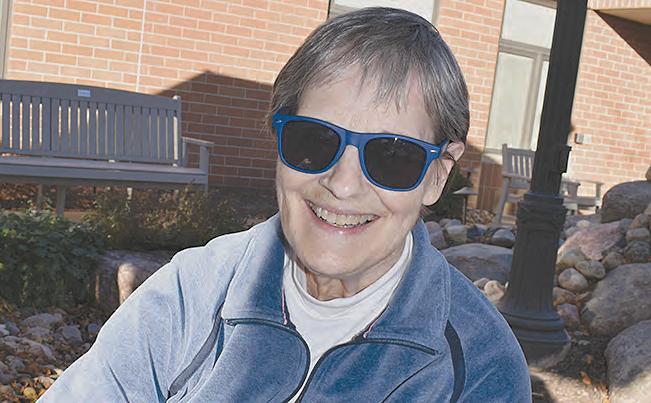
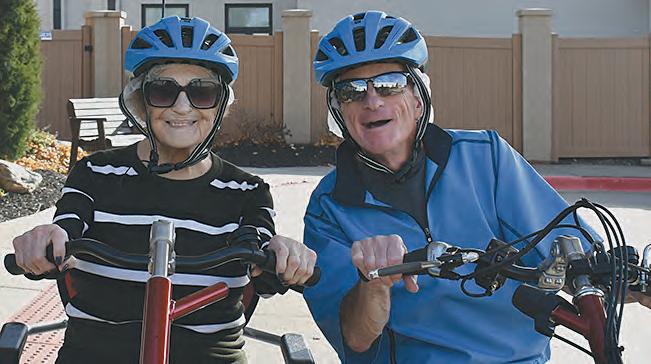
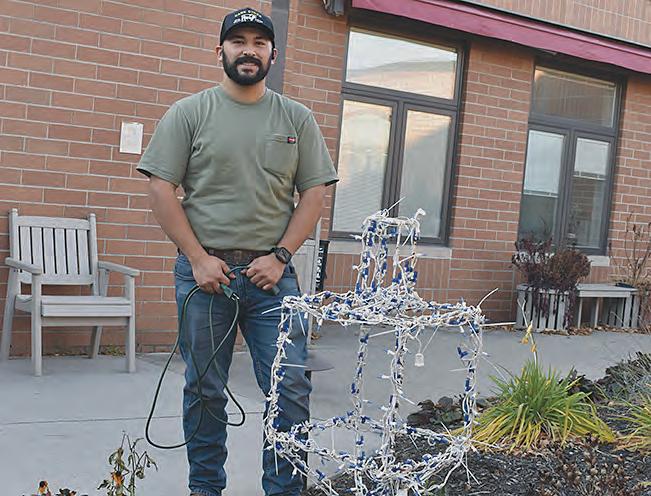
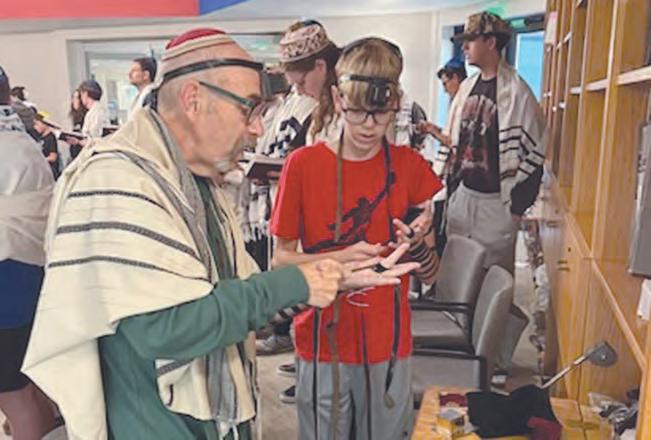
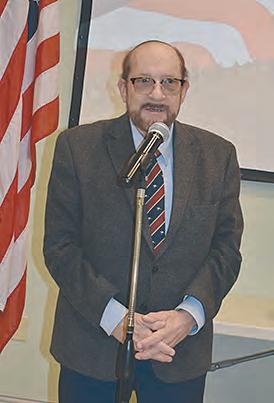
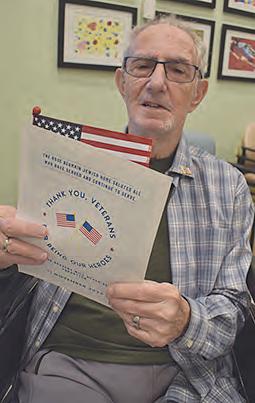
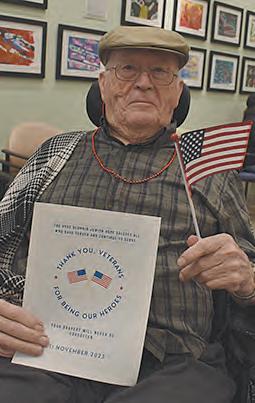
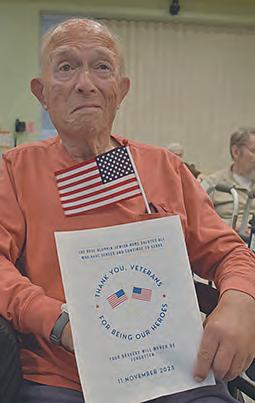
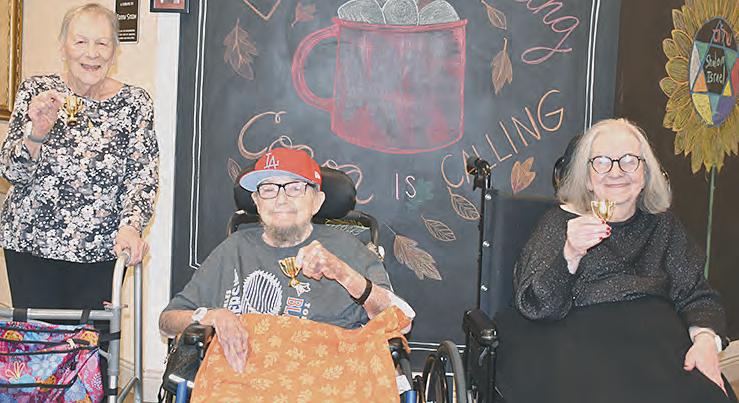
PHOTOS FROM RECENT JEWISH COMMUNITY EVENTS
SUBMIT A PHOTO: Have a photo of a recent Jewish Community event you would like to submit? Email the image and a suggested caption to: avandekamp@jewishomaha.org
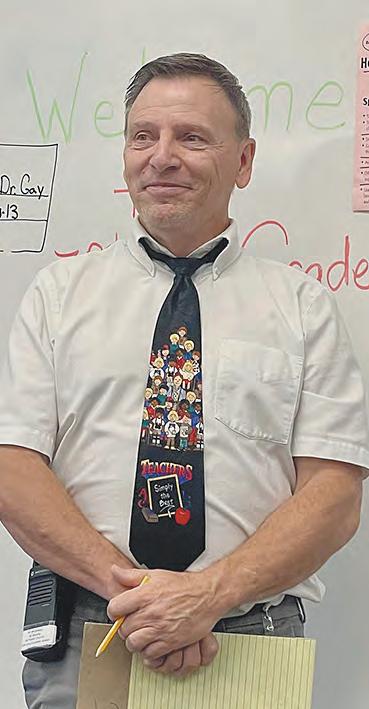
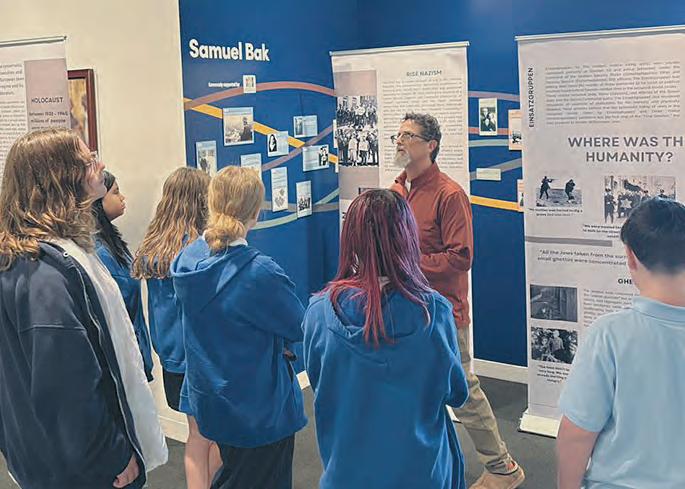
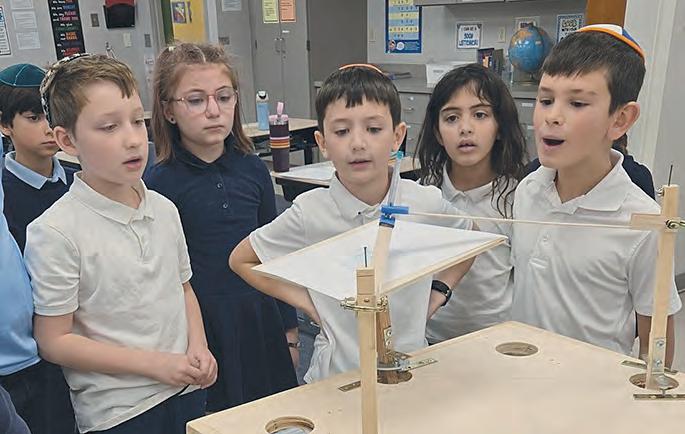
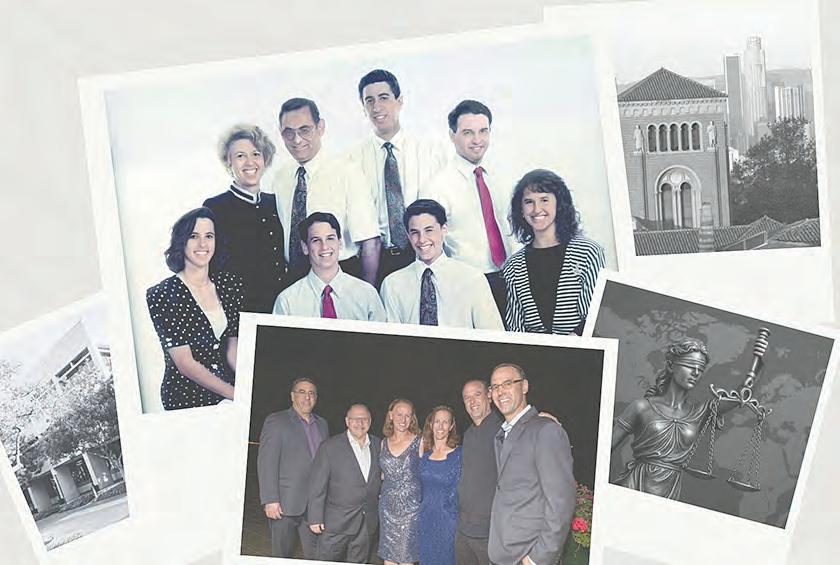
In July of this year, the Kaiman Center at Creighton University was made possible by a generous gift from Donna (Kaiman) Gilbert and her children, Dave and Stacey Gilbert. Before he passed away at the age of 93, Donna’s brother, Howard Kaiman, JD'67, asked his family to distribute his estate to worthy causes.
Now, the USC Gould School of Law has received a $5 million gift from the Gilbert family, to establish a new academic and advocacy center — focused on training future human rights attorneys and strengthening international laws and institutions for protecting human rights. The Center is named after Donna (Kaiman) Gilbert and Spencer Gilbert, longstanding members
of the USC community and parents of five USC alumni.
The Donna and Spencer Gilbert Global Justice and Human Rights Center will engage students, scholars and practitioners in education, research and policy work that promote an enduring respect for human rights. Drawing on the lessons and legacy of the Nuremberg Charter and Tribunal, the Gilbert Center’s projects and programming will operate at the forefront of international law, while preventing the spread of antisemitism, racism and all forms of xenophobia and persecution around the world.
“The Gilbert family’s vision and support will create a lasting legacy, one that advances justice, protects human rights and upholds the rule of law in communities everywhere,” said USC Gould Dean Franita Tolson. “This marks an exciting new chapter for the law school. The new Center will serve as a cornerstone of our global mission, fostering research, advocacy and education that reflect a profound commitment to fairness and human dignity.”
Donna Gilbert noted, “We are deeply honored to establish a Center that will empower future generations of lawyers and scholars to champion human rights around the world. Our family’s vision is to make the world better, more peaceful and more just, in every way we can.”
SCOTT LITTKY
IHE Executive Director
On Wednesday, Dec. 10 at 7 p.m. in the Benjamin and Anna E. Wiesman Family Reception Room at the Staenberg Jewish Community Center, 333 S 132nd Street, the Institute for Holocaust Education and Jewish Family Service will be presenting a program, Understanding Intergeneration Trauma with our speaker, Kelly Tichauer-Kirk.
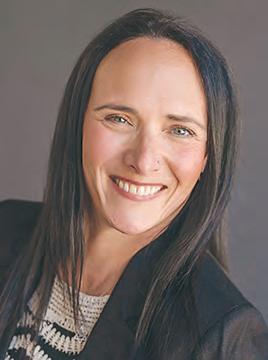
Kelly Tichauer-Kirk will lead a thought-provoking discussion on the complexities of intergenerational trauma, drawing from her graduate research in Holocaust and Genocide Studies and her personal family history as all four of her grandparents were Holocaust survivors. Through her presentation, participants will gain deeper insight into how trauma reverberates through generations and
Thanksgiving reflection
Chabad Nebraska
Thanksgiving has a special way of reminding us to stop, notice our blessings and say thank you. Families across America gather to express gratitude for the gifts in their lives, and there is something so beautiful about that. As Jews, we get to experience a version of Thanksgiving every single morning. Before anything else, before coffee, before phones, before the day begins rolling, we open our eyes and say the first words of the day: Modeh Ani.
Modeh Ani L’fanecha
Melech Chai V’kayam
Shehechezarta Bi Nishmati B'chemla
Raba Emunatecha
I offer thanks to You, living and eternal King, for You have mercifully restored my soul within me; Your faithfulness is great.
I thank You, Hashem, for giving me back my soul, for giving me another chance, for trusting me with one more day in this world.
It is simple, quiet and profound. It is a daily Thanksgiving that arrives with the sunrise, inviting us to begin from a place of appreciation, not expectation.
I think about this often when I watch my daughter say Modeh Ani. She puts her little hands together, closes her eyes
the ongoing process of resilience and remembrance.
Kelly Tichauer-Kirk is a Realtor and Holocaust educator based in Omaha, Nebraska. She is a partner of the Tichauer & Kirk Real Estate Group with Berkshire Hathaway HomeServices Ambassador Real Estate and has been serving clients for over 15 years. Kelly earned her Bachelor of Arts in Political Science from the University of Nebraska at Omaha in 1998, graduated from the Randall School of Real Estate in 2010, and completed her Master of Arts in Holocaust & Genocide Studies from Gratz College in Pennsylvania in 2025, where her research and thesis explored intergenerational trauma in the third-generation Holocaust survivor population.
A third-generation descendant of Holocaust survivors, Kelly serves as Chair of the Advisory Board for the Institute for Holocaust Education and as a Nebraska Jewish Historical Society board member. She shares her family’s story through public speaking and education to inspire others and ensure the lessons of the Holocaust are never forgotten.
For more information on this event, please contact, Scott Littky, executive director of the Institute for Holocaust Education at slittky@ihene.org
and really connects. In that tiny voice she thanks Hashem for a brand new day, and it moves me every time. In that moment she teaches me. She reminds me what it looks like to be fully present, to slow down, to appreciate the gift of waking up. There is something poetic about the fact that we brought her home from the hospital on Thanksgiving. Maybe it is not a coincidence at all. From her first day, she has been a living reminder of gratitude and blessing. Children have a way of doing that. They pull us back to the now. They teach us to savor the small wonders we adults tend to rush past. They show us that joy is not found in big accomplishments, but in simple moments like holding hands, saying a blessing or waking up to a new day.
This Thanksgiving I am reflecting on how lucky we are to have daily opportunities to be grateful. Modeh Ani is not just a prayer, it is a lens. A way of seeing the world. A way of remembering that every morning is a gift and every breath is a kindness. So today I say thank you. Thank you for life. Thank you for family. Thank you for the moments that stop us in our tracks. Thank you for the chance, again and again, to begin with appreciation. And thank you, Hashem, for the opportunities to be grateful for.
May we carry this spirit of Thanksgiving into every morning, and may our homes continue to be filled with gratitude, light and blessing.
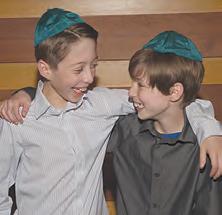


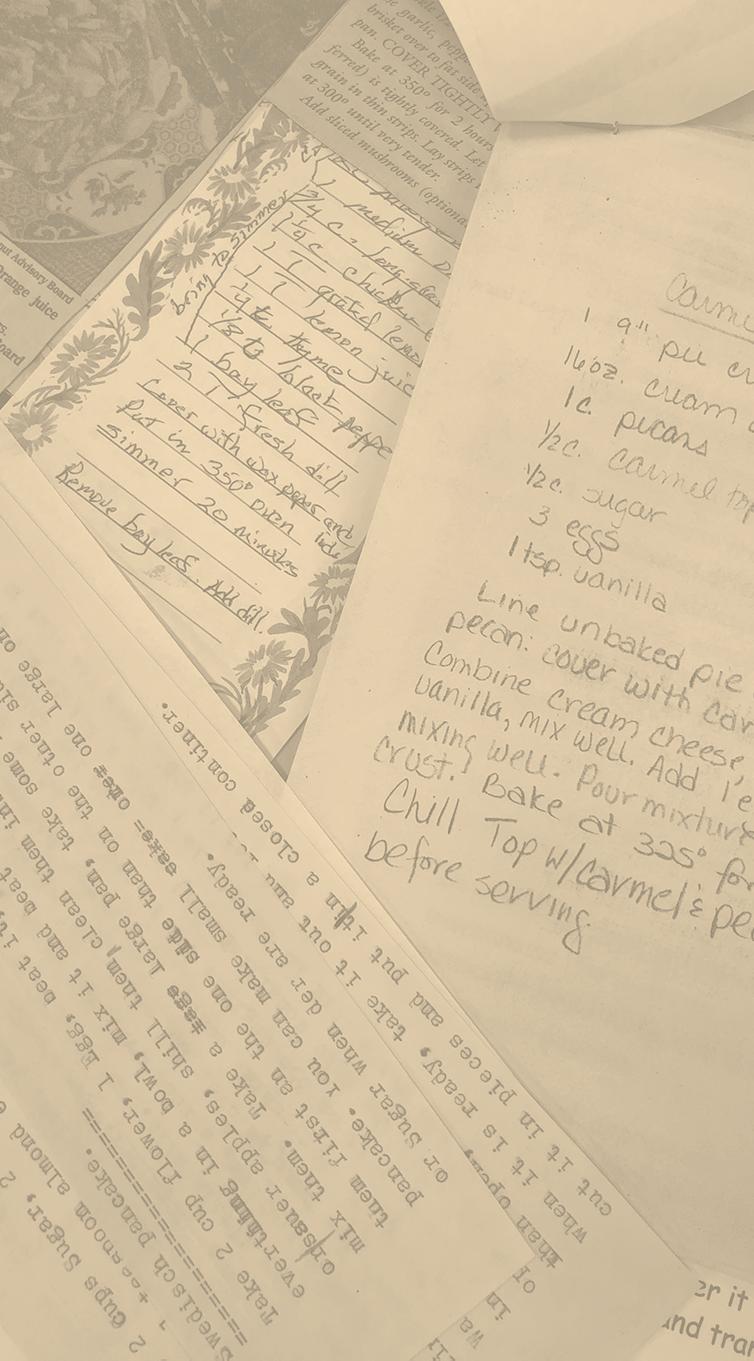
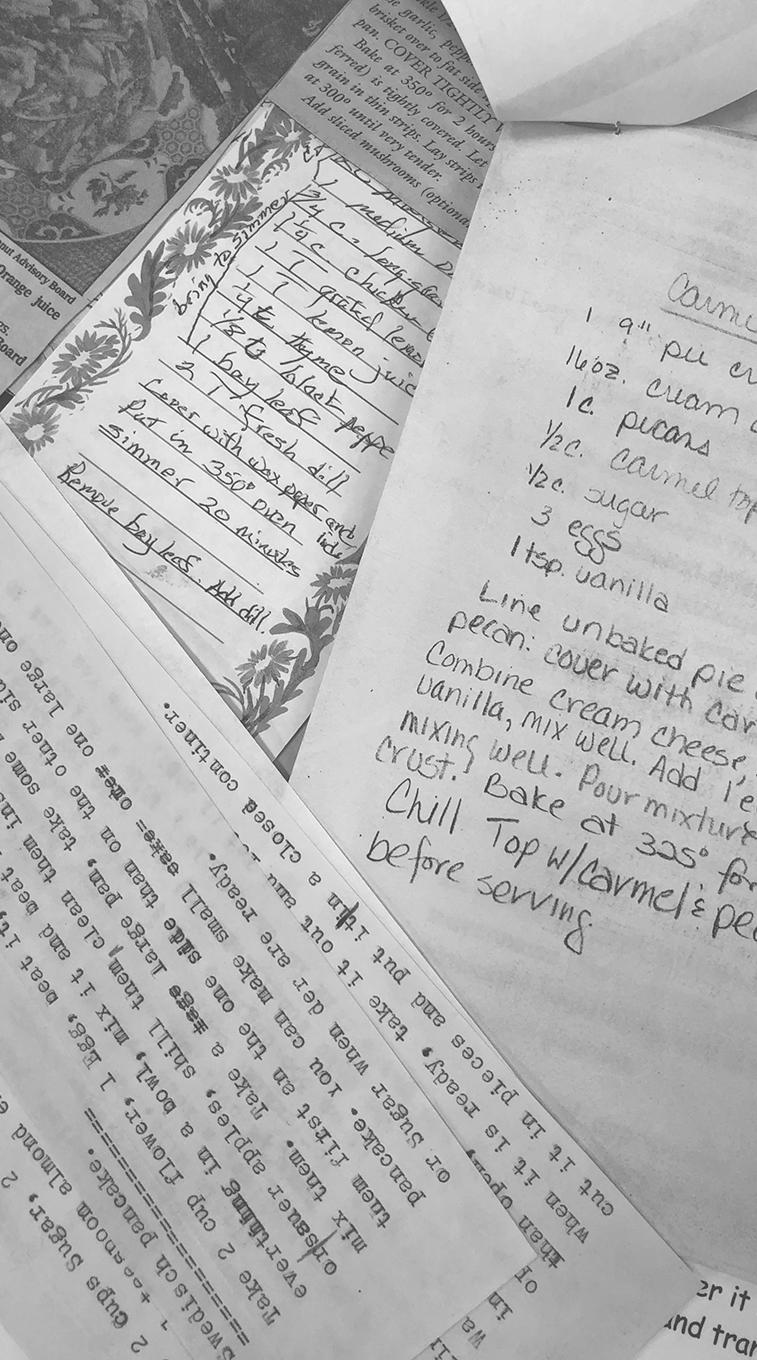
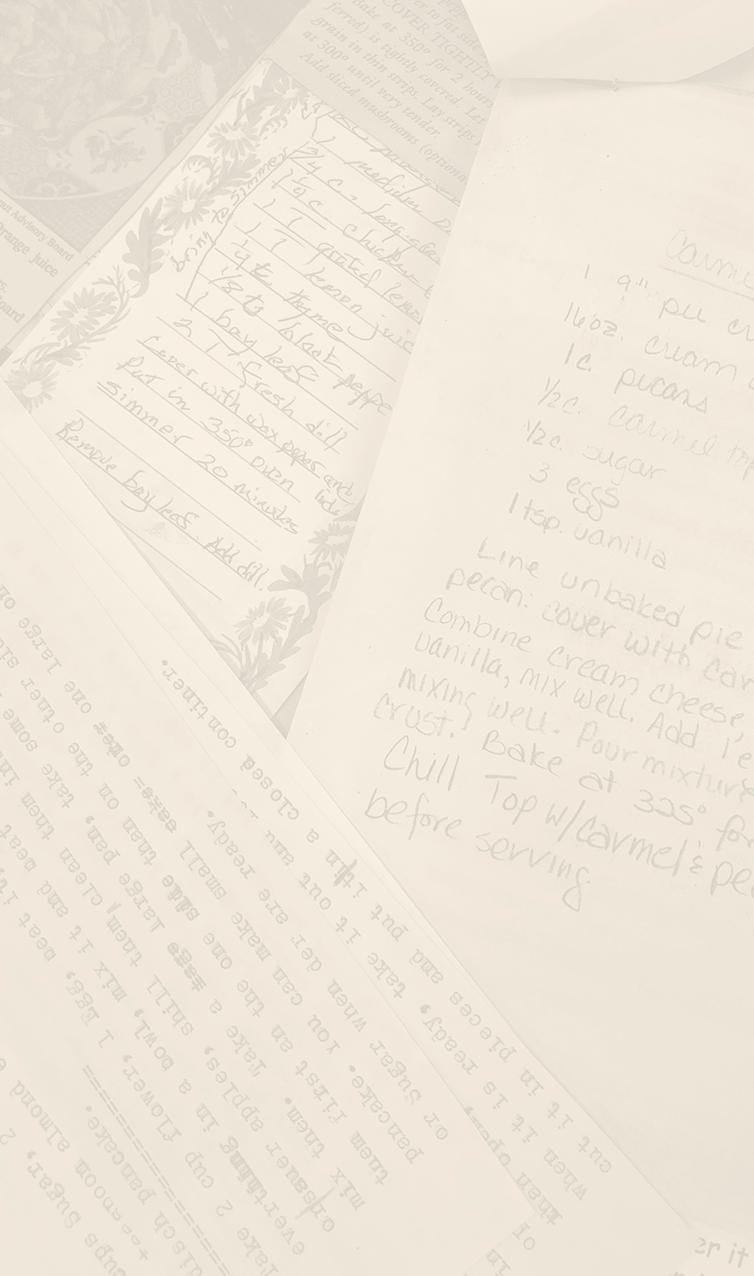
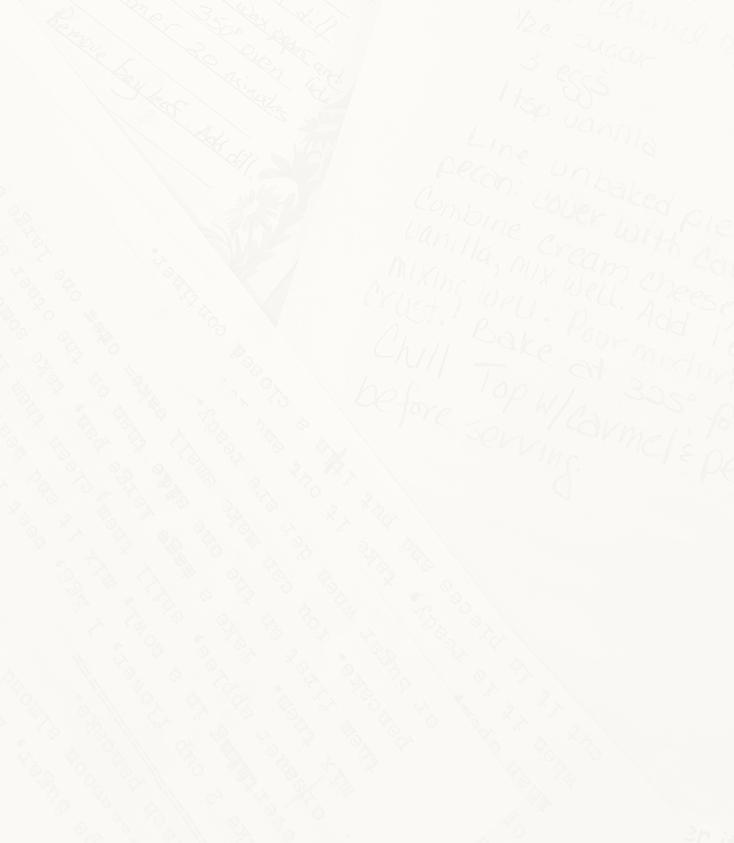
DIANE WALKER
JFO
Foundation Scholarship & Grants Manager
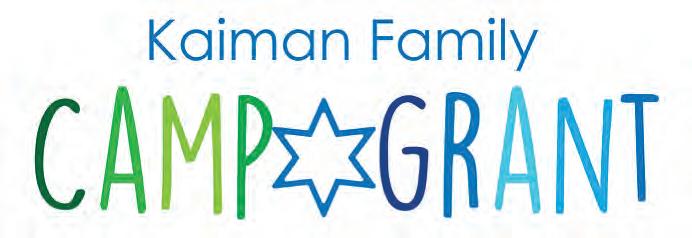
Thanks to the generosity of our community, a variety of funding sources are available to Omaha’s Jewish families to help with the financial burden of Jewish sleepaway camp, JCC summer camp, the Pennie Z. Davis Early Learning Center, Friedel Jewish Academy, Israel, and youth group activities. Assistance is also available for undergraduate, graduate, vocational, technical, professional or yeshiva studies and reduced JCC memberships.
The updated 2026 Scholarship and Grants booklet is included as an insert in this issue of the Jewish Press. The booklet and applications are available on the Jewish Federation of Omaha website.
The deadline for applications is Wednesday, Jan. 28, 2026. This change was implemented to help alleviate some difficulties with J Camp registration. The completed scholarship application essentially serves as J Camp registration, ensuring scholarship families can secure the spots they need.
THE KAIMAN FAMILY CAMP GRANT is back for summer 2026! An amazing gift from the family of Howard Kaiman, of blessed memory, these grants provide funds to summer campers - $1,200 for Jewish sleepaway camp or $250 for day camp. Awards are capped at 96 Jewish sleepaway and 100 day campers. This program can be used in conjunction with the JFO’s Jewish Experience Grant program for 2026. Additional details and the application are available on the JFO website →Our Priorities → Scholarships and Grants → Grant Programs.
EXPERIENCE GRANTS, funded by the Jewish Federation of Omaha, are available to any Omaha Jewish family meeting the program requirements, regardless of the family’s financial situation.
JEWISH EXPERIENCE GRANTS provide up to $2,000 for Jewish children in the metro area to attend residential summer camp. Grants are paid over two years with no more than $1,000 per summer.
ISRAEL EXPERIENCE GRANTS, provide up to $1,500 to students in grades nine–12 or young adults aged 18–26 for an Israel peer program. An additional stipend of $1,000 is provided for the bi-annual community teen trip to Israel.
Scholarships, awarded by the Financial Aid Committee of the JFO, are funded by many endowments established through the JFO Foundation, outside entities, and through the JFO’s Annual Campaign. Scholarships are available for JCC summer camp, residential Jewish summer camp, Israel peer programs, Friedel Jewish Academy, the Pennie Z. Davis Early Learning Center, and youth group programs. Jewish students, who are residents of the Omaha metropolitan area, can apply for scholarships for undergraduate, graduate, vocational, technical, professional or yeshiva studies programs. While most scholarships are based on financial need, some college See 2026 scholarships page 10

LYNN BATTEN
JFO Content Coordinator/Gallery Manager
Every day the Jewish Federation of Omaha and its agencies work to carry out their shared mission of building and sustaining a strong and vibrant Omaha Jewish community. Often this work is immediately recognizable, seen in the programs, services, and events that happen across the Staenberg Kooper Fellman campus. Some ways, however, are more subtle. Such is the case with campus infrastructure and parking.
The Staenberg Kooper Fellman campus is a busy place. On average the campus welcomes about 1,500 visitors per day for total of 547,500+ per year. These visitors include guests of the Jewish Federation of Omaha and its agencies (The Staenberg Omaha JCC, Jewish Family Service, the Rose Blumkin Jewish Home, Jewish Community Relations Council, the Institute for Holocaust Education, the Jewish Press, and the Nebraska Jewish Historical Society) as well as students of Friedel Jewish Academy.
Phil Malcom, Chief Operating Officer for the Jewish Federation of Omaha, sited these daily demands as a driving force behind recent campus improvements.
“In order to sustain an engaging campus that meets the needs of our visitors, we are always thinking about how spaces could be better utilized or improved to enhance their experience,” Malcom said. “Each project is done in accordance with our mission. We're focused on maintaining a strong Jewish community, not only for today but for generations to come. The immense growth of both our programs and our facilities highlighted the need to expand campus parking as a part of improving visitor experience.”
After examining all options, a plan was developed to include additional parking within the Rose Blumkin Jewish Home expansion project.
“In December of 2023 the decision was made to decommission the Livingston Plaza,” Malcom said. “In the spring of 2025, the Livingston Plaza was demolished to create space for the expansion of the Rose Blumkin Jewish Home and a new parking lot.”
Additional parking was also created along the north drive of the ring road.
The expanded parking was completed by the summer of 2025. While it may seem trivial in comparison to the beautiful new structures that have been added to the campus over the past few years, the parking has made a positive impact on visitors. Those who have seen particular benefit are visitors of the Staenberg Omaha JCC’s Phil Sokolof Fitness Center and Goldstein Aquatic Center. The new configuration of the parking lot allowed for an increase of handicapped spots near the Fitness Center entrance. There is now a total of eight direct access (no curb) spaces available. The parking lot project also included new sidewalks, new curbs, new lighting, new landscaping, security improvements, and the removal of old sewer grates.
Jason Epsenhart, Director of Facilities for the Jewish Federation of Omaha, said the project was meticulously thought through, always keeping campus visitors’ experience in mind.
“Removing the old sewer grates near the Fitness Center entrance made an immediate improvement in safety and aesthetic,” he said. “The grates were previously needed to drain storm water from the area. In the winter months the concern was the accumulation of snow and ice. During the warmer months crossing the grates sometimes posed a challenge for those with limited mobility. When the parking lot project was in the planning stages, the JFO made the decision to remove the grates and have the drainage integrated into the grading of the new parking lot. It was an extra step, but one that we felt would be well worth it. We worked with civil engineers to make the entry point to the fitness center as smooth as possible. Our goal was to make the area safer and more accessible.”
In addition to the functional improvements, the JFO also made sure that new security measures were implemented in an aesthetically pleasing way. Epsenhart said new landscaping was integrated into the parking lot to match the high level of beautification found throughout the campus. Large planter-style bollards were installed for added security and new LED lighting was installed to keep the area well-lit and safe.
“It was a very large undertaking that was completed in three months. That really is an extraordinary accomplishment considering all the different pieces involved with removing the Livingston Plaza,” Epsenhart said.
Currently, only about half of the 90 new parking stalls are available to campus visitors. Approximately 45 of the stalls remain occupied by the construction of the Blumkin Home expansion. This includes some of the parking along the north ring road which is temporarily being used as a drive lane. Shifting the traffic pattern in such a manner has allowed the north ring road to remain open during the RBJH expansion project.
The Rose Blumkin Jewish Home expansion will bring 32 new, single occupancy rooms (short-term and long-term care) with private bathrooms and zero-entry showers. New shared spaces will include community living rooms, community dining rooms, a rooftop balcony, and a dedicated parking lot. Also included is the creation of the Alan J. Levine Rehabilitation Center, a short-term rehabilitation wing designed to provide services for community members who need help recovering from illness, injury, or surgery. The Rose Blumkin Jewish Home continues to offer 24-hour licensed nursing care, long-term residential care, short-term rehabilitation therapies, respite care, and hospice care during the renovation. It welcomes Residents of all backgrounds and faiths.
The completion date of the Rose Blumkin Jewish Home expansion is projected for the summer of 2026. Upon completion campus visitors will be able to enjoy use of the full parking lot.
“We recognize it’s an inconvenience to have some of the new parking stalls temporarily occupied by construction, but it really was the least disruptive option available,” Epsenhart said. “We appreciate everyone’s patience during our projects. We truly do keep campus visitors and JCC members in mind with every decision we make. We work hard to make sure you have a beautiful campus to enjoy.”

(Founded in 1920)
David Finkelstein
President
Annette van de Kamp-Wright
Editor
Will Fischer
Creative Director
Claire Endelman
Sales Director
Lori Kooper-Schwarz
Assistant Editor
Sam Kricsfeld
Digital support
Mary Bachteler
Accounting
Jewish Press Advisory Board
David Finkelstein, President; Margie Gutnik, Ex-Officio; Joseph Abrahams, Helen Epstein, Andrea Erlich, Ally Freeman, Dana Gonzales, Mary Sue Grossman, Hailey Krueger, Chuck Lucoff, Sara Rips, Stewart Winograd and Bob Yaffe.
The mission of the Jewish Federation of Omaha is to build and sustain a strong and vibrant Omaha Jewish Community and to support Jews in Israel and around the world. Agencies of the JFO are: Institute for Holocaust Education, Jewish Community Relations Council, Jewish Community Center, Jewish Social Services, Nebraska Jewish Historical Society and the Jewish Press Guidelines and highlights of the Jewish Press, including front page stories and announcements, can be found online at: www.jewishomaha.org; click on ‘Jewish Press.’ Editorials express the view of the writer and are not necessarily representative of the views of the Jewish Press Board of Directors, the Jewish Federation of Omaha Board of Directors, or the Omaha Jewish community as a whole. The Jewish Press reserves the right to edit signed letters and articles for space and content. The Jewish Press is not responsible for the Kashrut of any product or establishment.
Editorial
The Jewish Press is an agency of the Jewish Federation of Omaha. Deadline for copy, ads and photos is: Thursday, 9 a.m., eight days prior to publication. E-mail editorial material and photos to: avandekamp@jewishomaha.org ; send ads (in TIF or PDF format) to: rbusse@jewishomaha.org
Letters to the Editor Guidelines
The Jewish Press welcomes Letters to the Editor. They may be sent via regular mail to: The Jewish Press, 333 So. 132 St., Omaha, NE 68154; via fax: 1.402.334.5422 or via e-mail to the Editor at: avandekamp@jewishomaha.org.
Letters should be no longer than 250 words and must be single-spaced typed, not hand-written. Published letters should be confined to opinions and comments on articles or events.
News items should not be submitted and printed as a “Letter to the Editor.”
The Editor may edit letters for content and space restrictions. Letters may be published without giving an opposing view. Information shall be verified before printing. All letters must be signed by the writer. The Jewish Press will not publish letters that appear to be part of an organized campaign, nor letters copied from the Internet. No letters should be published from candidates running for office, but others may write on their behalf.
Letters of thanks should be confined to commending an institution for a program, project or event, rather than personally thanking paid staff, unless the writer chooses to turn the “Letter to the Editor” into a paid personal ad or a news article about the event, project or program which the professional staff supervised. For information, contact Annette van de Kamp-Wright, Jewish Press Editor, 402.334.6450.
Postal The Jewish Press (USPS 275620) is published weekly (except for the first week of January and July) on Friday for $40 per calendar year U.S.; $80 foreign, by the Jewish Federation of Omaha. Phone: 402.334.6448; FAX: 402.334.5422.
Periodical postage paid at Omaha, NE. POSTMASTER: Send address changes to: The Jewish Press, 333 So. 132 St., Omaha, NE 68154-2198 or email to: jpress@jewishomaha.org
ANNETTE VAN DE KAMP-WRIGHT
Jewish Press Editor
In a recent story about the impact of deployed US military in Kiryat Gat, Deborah Danan discussed some local responses to the American presence in the southern Israeli city. Some are happy with the economic boom; others worry about the city becoming a target. Then there was this:
“One online commenter went further, alleging that the Americans were “FEMA soldiers” forming a multinational force that would eventually replace the IDF and police “in preparation for a single world government,” a conspiracy theory tied to claims about “Agenda 2030.”
What is “Agenda 2030” again?
Oh, right; the U.N.’s Sustainable Development Goals. Including things like “Zero Hunger,” “Gender Equality” and “No Poverty,” it’s a somewhat ambitious dreamscape. Cue the conspiracies.
“Users on social media have falsely suggested that "Agenda 2030" is proof that the COVID-19 pandemic is part of a conspiracy,” according to Reuters. Other things Agenda 2030 are linked to are the “great reboot theory,” (a follow-up to the idea that the pandemic wasn’t real), something called “trickle-down communism” and, of course, the New World Order. That’s where the FEMA allegations come in.
Basically, the notion is that there is a secret government, consisting of billionaires from various countries who plan to bypass local and national politics, and take over the world. We are certainly familiar with that one. It’s funny, the mental gymnastics people go through, inventing wild theories
Editorials express the view of the writer and are not necessarily representative of the views of the Jewish Press Advisory Board, the Jewish Federation of Omaha Board of Directors, or the Omaha Jewish community as a whole.
about how the world works. But here’s the thing: from blood libels to accusations of propagandizing Jewish and Israel-related news, from lizard DNA to controlling the weather, the number of conspiracy theories surrounding us is so vast, we can’t even really pay attention anymore.
We were accused of poisoning wells in 14th century Europe, causing the Black Death, being responsible for the 9/11 terrorist attacks, and both spreading Covid-19 and profiteering off of the vaccine. We are insular and too cosmopolitan, we’re too rich but also Communists, we made up the Holocaust and Hitler should have “finished the job.”
Is anyone else tired?
Sometimes looking the other way is tempting. It’s not like all the keyboard warriors out there would listen anyway, even if we tried. And why should I care about Tucker Carlson, or Nick Fuentes? Or the kid who shot Trump’s ear? Do we really need to know about all the details, the why, the different variations of hate? Antisemitism comes in all the flavors.
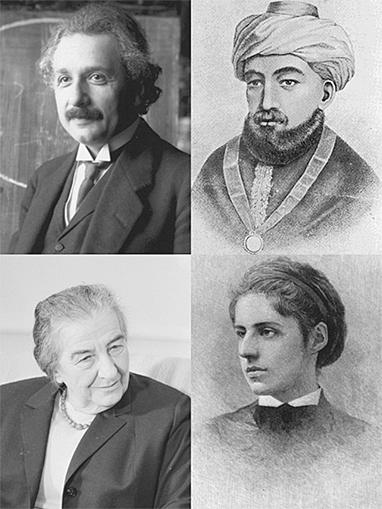
“I’ve always asked the age-old question,” Rabbi Yehoshua B. Gordon wrote, “Why don’t they like the Jews? What have we done? We’re nice people.
Wherever we go, we contribute. Wherever we go, we help. Wherever we go, we’re loyal.” He followed it by stating: “Antisemitism cannot be fixed by trying to solve the supposed problem. Some argue: ‘If they hate us because we’re successful, maybe we should lie low and act poorer?’ Others suggest: ‘If they hate us because we lie low, maybe we should act wealthier and be better citizens?’ The only proper response to antisemitism is to be who you are, walk with your head held high, and be proud of your Judaism.” What does that mean, “our head held high?” I think it means that when we hear about bizarre conspiracy theories, we have to be confident about who we are. Others can spread rumors about us, but we know we don’t control the weather, we are not partlizard, we don’t control the banks or the media. We know blood libels are lies, and we don’t have secret plans to govern the world. It doesn’t mean looking the other way; it means knowing who we are, and defining our own identity rather than letting others define it for us.
Because if we let them, they’ll come up with crazy stuff.
RABBI JESSICA FISHER
JTA
Several years ago, I went through a long, nearly immobilizing depression. At some point, I made a playlist I called “Morning,” with the hope that it would help propel me out of bed and into my day. The playlist was made up of contemporary music anchored in traditional Jewish morning liturgy. Each track contained a mantra of ancient verses that poignantly captured essential sentiments and wordless melodies that articulated striving, divinity and even joy.
Traditional prayer was difficult during much of this period, both the words and the time-sensitive strictures of daily prayer, but this playlist was a kind of prayer in its own right. And though it did not, by itself, lift my depression, it proved a surprisingly effective reprieve. Playing these prayer-songs as I woke up and got ready for the day, helped me detach myself from the heaviness that surrounded me.
In a recent New York Times “Believing” newsletter about modern religion and spirituality, Lauren Jackson shared Serena Alagappan’s poem The Way of a Pilgrim. The poem, Jackson wrote, demonstrates “how a refrain — mumbled, repeated, half-meant— can still change you. It can be like a prayer.”
The idea that a poem or phrase can be a transformative portal is a powerful opening for people who have stepped away from traditional forms of prayer. While many people are disengaging from religious communities, others are seeking belonging, meaning, and purpose through religious and spiritual experiences. As Jackson suggested, there are ways to think expansively about prayer that can change you. Poetry may be one such avenue, but Jewish traditions — both ancient and contemporary — can also meet us in so many moments and can encompass rich pathways to connection, fulfillment, and healing.
Even as it can offer a moment of escape, prayer does not avoid the hard things about life. Listening to, or, in my stronger moments, singing along with a song that derived its words from Psalm 130, “From the depths I call to you, God…”, attached me to a chain of thousands of years of people reaching out to God from despair. Similarly, starting my day with the words “I am grateful before you, living and eter-
nal Ruler” linked me to the hundreds of thousands of Jews who were also beginning their day with the same prayer, and gave me a way to externalize the gratitude that I couldn’t quite muster for myself. Prayer can’t “cure” depression — it certainly did not cure mine — but people experiencing depression may find echoes of their experiences, comfort and affirmation in prayer and ritual, as I did. Liturgy in different forms can connect us to deep wells of history and to others who have cried out for support.
Traditions of Jewish prayer trace back to Genesis and they are still developing today. The Jewish prayerbook is a patchwork, with layers of texts and commentaries from different generations of Jews trying to find the right combination of words to capture our lived experiences, our understanding of and gratitude to God, and our needs. These layers are also reflected in Jewish legal traditions, where different rabbis have attempted to identify what rules and guidelines can help facilitate the work of speaking to God, including when and where to pray and what words to say.

recipient of these pleas, also make prayer feel less relevant or meaningful. And for many, it’s just not the way they want to spend their time.
Despite this rich heritage, many Jews today struggle with prayer, just as our ancestors did. Whether it is a growing emphasis on rationalism or individualism, increasing polarization, or the fraying bonds of peoplehood, engagement with Jewish prayer, like religious worship in other faith communities, is waning. In my work as a rabbi, people have approached me seeking to begin or deepen their engagement with Jewish prayer. Others have lamented their inability to connect to prayer or religious services or find particular prayers challenging. For some, the liturgy feels archaic or cumbersome. For others, the prescriptions around consistent prayer practices are too onerous. For still others, the absence of obvious efficacy, or doubts about God as a
But thousands of years of Jews grappling with these obstacles have insights and tools to offer us. Sometimes, hearing the words set to a melody can unlock a new relationship with a particular passage, as it did for me in my “Morning” playlist. Sometimes, choosing just one prayer to study or reflect on can reveal the poetry of our spiritual canon. The routine of attending synagogue regularly and letting the words and rhythms of the congregation wash over you can connect you to both text and community. Even having a conversation about prayer and theology with a friend or neighbor can be a moving spiritual exercise in its own right. By way of example, over the past year, I have been in conversation with rabbis, scholars, and community members who are also wrestling with how prayer fits into contemporary Jewish life. I pray regularly, but listening to others describe their doubts, joys and search led me to ask myself questions about my prayer life and making new connections to prayer of my own. When Sara Labaton shared a story about praying for her grandmother’s lost ring and her terminally ill father’s health, I thought about moments in my own life where I felt prayer “worked” or didn’t. Speaking to Elana Stein Hain and Yossi Klein Halevi about the interplay between personal and communal prayer affirmed how much I benefit from praying in chorus with others. Prayer has met me in so many different kinds of moments. In a time when there is so much darkness and fear and loneliness, I hope that even those of us who are skeptical or just too busy or exhausted, open ourselves up to the possibility that prayer might accompany us and even buoy us. Even, or maybe especially, for those times when we’ve stepped away from prayer, hearing how others wrestle with some of the same questions and struggles might spark new ways to connect. Perhaps, the way into prayer is as simple as settling into one phrase — one word! — and repeating it until it changes you. Rabbi Jessica Fisher is director of teen and educational initiatives at the Shalom Hartman Institute. She is the host of the podcast “Thoughts and Prayers.”
B’NAI ISRAEL SYNAGOGUE
618 Mynster Street Council Bluffs, IA 51503-0766
712.322.4705 www.cblhs.org
BETH EL SYNAGOGUE
Member of United Synagogues of Conservative Judaism 14506 California Street Omaha, NE 68154-1980
402.492.8550 bethel-omaha.org
BETH ISRAEL
SYNAGOGUE
Member of Union of Orthodox Jewish Congregations of America 12604 Pacific Street Omaha, NE. 68154
402.556.6288 BethIsrael@OrthodoxOmaha.org
CHABAD HOUSE
An Affiliate of Chabad-Lubavitch 1866 South 120 Street Omaha, NE 68144-1646
402.330.1800 OChabad.com email: chabad@aol.com
LINCOLN JEWISH COMMUNITY:
B’NAI JESHURUN
South Street Temple
Union for Reform Judaism 2061 South 20th Street Lincoln, NE 68502-2797
402.435.8004 www.southstreettemple.org
OFFUTT AIR
FORCE BASE
Capehart Chapel 2500 Capehart Road Offutt AFB, NE 68123
402.294.6244 email: oafbjsll@icloud.com
TEMPLE ISRAEL
Union for Reform Judaism (URJ) 13111 Sterling Ridge Drive Omaha, NE 68144-1206
402.556.6536 templeisraelomaha.com
LINCOLN JEWISH COMMUNITY:
TIFERETH ISRAEL
Member of United Synagogue of Conservative Judaism 3219 Sheridan Boulevard Lincoln, NE 68502-5236 402.423.8569 tiferethisraellincoln.org
Monthly Speaker Series Service and Hanukkah celebration, Friday, Dec. 12, 7:30 p.m. featuring the return of the Bagel Boys. Our service leader is Larry Blass. Everyone is always welcome at B’nai Israel! For information about our historic synagogue, please visit our website at www.cblhs.org or contact any of our other board members: David Alloy, Renee Corcoran, Rick Katelman, Gail Kenkel, Janie Kulakofsky, Howard Kutler, Ann Moshman, Mary-Beth Muskin, Debbie Salomon and Sissy Silber. Handicap Accessible.
Services conducted by Rabbi Steven Abraham and Hazzan Michael Krausman.
IN-PERSON AND ZOOM MINYAN SCHEDULE: Mornings on Sundays, 9:30 a.m.; Mondays and Thursdays, 7 a.m.; Evenings on Sunday-Thursday, 5:30 p.m.
FRIDAY: Kabbalat Shabbat 6 p.m. at Beth El & Live Stream.
SATURDAY: Shabbat Morning Services, 10 a.m. at Beth El and Live Stream; Havdalah, 5:35 p.m. Zoom Only.
SUNDAY: No BESTT Classes this week; Dinner at the Stephen Center, 5 p.m.
TUESDAY: Mishneh Deot & Sefer HaMiddot, 10:30 a.m. with Rabbi Abraham.
WEDNESDAY: BESTT (Grades 3-7), 4 p.m.; BESTT Family Dinner (Grades 3-12), 4 p.m.; Hebrew High (Grades 8-12), 6 p.m.; USY Lounge Night, 7:30 p.m.
THURSDAY: Latkes & Libations, 6 p.m.
FRIDAY-Dec. 5: Kabbalat Shabbat, 6 p.m. at Beth El & Live Stream; Our Shabbat Tables in Homes.
SATURDAY-Dec. 6: Shabbatsana Yoga, 9 a.m.; Shabbat Morning Services, 10 a.m. at Beth El and Live Stream; Jr. Congregation (Grades K-12) 10 a.m.; Kiddush sponsored by Amy & Sandy Friedman for Sandy’s 80th birthday; JCRC welcomes Sharaka to Beth El — Panel discussion following services; Lunch co-sponsored by JCRC and Amy & Sandy Friedman; Havdalah, 5:35 p.m. Zoom Only. Please visit bethel-omaha.org for additional information and service links.
FRIDAY: Office Closed; Shacharit, 9 a.m.; Mincha/ Kabbalat Shabbat/Candlelighting, 4:38 p.m.
SATURDAY: Shabbos Cafe, 8:30 a.m.; Shacharit 9 a.m.; Tot Shabbat, 10:30 a.m.; Youth Class, 10:45 a.m.; Soulful Torah, 3:45 p.m. with Rabbi Geiger; Mincha 4:30 p.m.; Kids Activity/Laws of Shabbos 5 p.m.; Havdalah, 5:42 p.m.
SUNDAY: Shacharit 9 a.m.; Mincha/Ma’ariv 4:40
p.m.
MONDAY: Nach Yomi, 6:45 a.m.; Shacharit, 7 a.m.; Monday Mind Builders, 4 p.m.; Mincha/Ma’ariv 4:40 p.m.
TUESDAY: Nach Yomi, 6:45 a.m.; Shacharit, 7 a.m.; Mincha/Ma’ariv 4:40 p.m.; Women’s Chaburah Class 8 p.m.
WEDNESDAY: Nach Yomi, 6:45 a.m.; Shacharit, 7
Continued from page 8 scholarships are merit-based. SPECIAL FUNDS OF NOTE:
DAVID W. & MINNIE FRANK MEMORIAL FUND was established by the daughters of David and Minnie Frank to aid students entering their junior or senior year of college who have demonstrated success in academics.
BEN E. KASLOW SCHOLARSHIP FUND was established by the Howard and Richard Kaslow families to honor and perpetuate the memory of their late father, Ben E. Kaslow. The fund is intended to provide scholarships for Jewish summer camps, summer study trips to Israel, and Jewish youth programs, seminars, or conventions.
DAVID J. & SUE MEYERS JEWISH EXPERIENCE SCHOLARSHIP ENDOWMENT FUND was endowed to provide scholarships for Jewish youth to attend Jewish summer day camps and summer residential camps sponsored by Jewish organizations, to attend Jewish youth group conventions, and to take organized trips to Israel.
SUZANNE RICHARDS SINGER ENDOWMENT FUND was endowed by the Milton S. and
a.m.; Mincha/Ma’ariv 4:40 p.m.
THURSDAY: Nach Yomi, 6:45 a.m.; Shacharit, 7 a.m.; Mincha/Ma’ariv, 4:40 p.m.
FRIDAY-Dec. 5: Nach Yomi, 6:45 a.m.; Shacharit, 7 a.m.; Mincha/Kabbalat Shabbat/Candlelighting, 4:36 p.m.
SATURDAY-Dec. 6: Shabbos Cafe, 8:30 a.m.; Shacharit, 9 a.m.; Tot Shabbat, 10:30 a.m.; Youth Class 10:45 a.m.; Soulful Torah, 3:45 p.m. with Rabbi Geiger; Mincha, 4:30 p.m.; Kids Activity/Laws of Shabbos, 5 p.m.; Havdalah, 5:41 p.m. Please visit orthodoxomaha.org for additional information and Zoom service links.
Join classes via Zoom. Go to ochabad.com/academy. For more information or to request help, please visit www.ochabad.com or call the office at 402.330.1800.
FRIDAY: Shacharit, 8 a.m.; Lechayim, 4:30 p.m., go to ochabad.com/lechayim to join; Candlelighting, 4:38 p.m.
SATURDAY: Shacharit, 10 a.m. followed by Kiddush and Cholent; Shabbat Ends, 5:41 p.m.
SUNDAY: Sunday Morning Wraps, 9 a.m.
MONDAY: Shacharit, 8 a.m.; Personal Parsha, 9:30 a.m. with Shani; Intermediate Biblical Hebrew Grammar, 10:30 a.m. with David Cohen; CU Jews PreHanukkah Celebration, 4 p.m., contact Mushka at mushka@ochabad.com for more info; Parsha Reading, 6 p.m. with David Cohen; Translating Words of Prayer, 7 p.m. with David Cohen.
TUESDAY: Shacharit, 8 a.m.; Aramaic Grammar, 10 a.m. with David Cohen; Intermediate Biblical Hebrew Grammar, 6 p.m. with David Cohen; Introductory Biblical Hebrew Grammar, 7 p.m. with David Cohen
WEDNESDAY: Shacharit 8 a.m.; Introductory Biblical Hebrew Grammar, 10:30 a.m. with David Cohen; Parsha Reading, 11:30 a.m. with David Cohen.
THURSDAY: Shacharit, 8 a.m.; Advanced Biblical Hebrew Grammar, 11 a.m. with David Cohen; Talmud Study, noon; Introduction to Alphabet, Vowels & Reading Hebrew, 6 p.m. with David Cohen; Code of Jewish Law Class, 7 p.m.
FRIDAY-Dec. 5: Shacharit 8 a.m.; Lechayim, 4:30 p.m., go to ochabad.com/lechayim to join; Candlelighting, 4:37 p.m.; Young Professionals’ Shabbat Dinner, RSVP at ochabad.com/CYP
SATURDAY-Dec. 6: Shacharit, 10 a.m. followed by Kiddush and Cholent; Shabbat Ends, 5:40 p.m.
LINCOLN JEWISH COMMUNITY: B’NAI JESHURUN & TIFERETH ISRAEL
Services facilitated by Rabbi Alex Felch. All services offered in-person with live-stream or teleconferencing options.
FRIDAY: Offices Closed; Shabbat Candlelighting, 4:43 p.m.; Kabbalat Shabbat Service, 6:30-7:30 p.m. led by Rabbi Alex at SST.
SATURDAY: Shabbat Morning Service, 9:30 a.m. led by Rabbi Alex at TI; Torah Study, noon on Parashat Vayeitzei via Zoom; Havdalah, 5:45 p.m.; YJI
Corinne N. Livingston Foundation for scholarships for Jewish students attending the JCC’s Pennie Z. Davis Early Learning Center. It was established in honor of Suzanne Richards Singer, a dedicated Omahan, on her being named JFO’s 2005 Humanitarian of the Year.
There are also several scholarship programs outlined in the 2026 Scholarship and Grants booklet which are outside the realm of the Financial Aid Committee. These include the Sokolof Honor Roll scholarships, the Fellman/Kooper scholarships, the Leon Fellman, DDS and A.A. & Ethel Yossem scholarships for Creighton University and the Bennet G. Hornstein Endowment Fund. Sources for additional information on these scholarships are included in the booklet.
Friendsgiving Potluck, 6 p.m. at SST. Bring a dish or beverage to share. Questions? Emial lincolnyji@ gmail.com
SUNDAY: No LJCS Classes this week; Men’s Bike/ Coffee Group, 10:30 a.m. at Rock 'N' Joe Coffee, 5025 Lindberg St, Lincoln. For more information or questions please email Al Weiss at albertw801@gmail. com
TUESDAY: The Jewish Federation of Lincoln Annual Meeting, 6:30-8 p.m. Please join us via Zoom.
WEDNESDAY: LJCS Hebrew School, 4:30-6 p.m.
FRIDAY-Dec. 5: Jessica Elsner Bat Mitzvah; Shabbat Candlelighting, 4:41 p.m.; Kabbalat Shabbat Service, 6:30-7:30 p.m. led by Rabbi Alex at SST.
SATURDAY-Dec. 6: Jessica Elsner Bat Mitzvah; Shabbat Morning Service, 9:30 a.m. led by Rabbi Alex at TI; Torah Study noon on Parashat Vayishlach via Zoom; Havdalah, 5:44 p.m.
FRIDAYS: Virtual Shabbat Service, 7:30 p.m. every first and third of the month at Capehart Chapel. Contact TSgt Jason Rife at OAFBJSLL@icloud.com for more information.
In-person and virtual services conducted by Rabbi Benjamin Sharff, Rabbi Deana Sussman Berezin, and Cantor Joanna Alexander.
FRIDAY: Temple Israel Office Closed; Shabbat B’yachad Service, 6 p.m. In-Person & Zoom
SATURDAY: Torah Study, 9:15 a.m. In-Person & Zoom; Shabbat Morning Service, 10:30 a.m. In-Person & Zoom.
SUNDAY: No Youth Learning Programs this week; Fifth Sunday Breakfast Service, 9 a.m. at Stephen Center — In-Person.
TUESDAY: Mah Jongg Made Easy, 1:30 p.m. In-Person.
WEDNESDAY: Yarn It, 9 a.m. In-Person; Grades 36, 4:30 p.m. In-Person; Hebrew CHAI: Grades 8-12, 6 p.m. In-Person; Demystifying Year-End Giving: TaxSmart Ways to Give, 7 p.m. In-Person & Zoom
THURSDAY: The Zohar: Thursday Morning Class 11 a.m. with Rabbi Sharff — In-Person & Zoom
FRIDAY-Dec. 5: Drop-In Mah Jongg, 9 a.m. In-Person; Rock Shabbat Service, 6 p.m. In-Person & Zoom
SATURDAY-Dec. 6: Torah Study, 9:15 a.m. In-Person & Zoom; Shabbat Morning Service and Bar Mitzvah of Benjamin Benton 10:30 a.m. In-Person & Zoom.
Please visit templeisraelomaha.com for additional information and Zoom service links.
UPDATED OBITUARY CHANGES
As of July 1, 2025, Obituaries in the Jewish Press are free of charge.
For questions, please email avandekamp@ jewishomaha.org. Obituaries in the Jewish Press are included in our print edition as well as our website at www.omahajewishpress.com

LEON FELLMAN DDS ’32 SCHOLARSHIP
FUND was established to assist students enrolled in the School of Dentistry at Creighton University with the hope that recipients will engage with the Omaha Jewish community and ultimately establish
dental practices in the Omaha area. BENNETT G. HORNSTEIN ENDOWMENT FUND was endowed by the family and friends of the late Bennett G. Hornstein to provide scholarships for aspiring law students enrolled at either the University of Nebraska College of Law or Creighton University School of Law. Omaha’s Jewish families are encouraged to take advantage of these funding opportunities. All financial information is kept completely confidential. For any questions, please reach out to Diane Walker at either dwalker@jewishomaha.org or 402.334.6551.
KOSINOVSKY
JOSEPH
Joseph Kosinovsky, a resident of Omaha, NE, for 42 years, who moved to Charlotte, NC, in 2022 to be close to his children and grandchildren, passed away at age 87.5 in the early morning of Nov. 20, 2025, and was buried in Charlotte’s Hebrew Cemetery on the morning of Nov. 21, 2025.
He is survived by his beloved family, including his wife, Leah Kosinovsky (née Litvin); his children, Gregory and Zarina Kosinovsky; his grandchildren: Hannah Wise (née Kosinovsky), Jacob Kosinovsky, and Sarah and Arielle Gorbatov; and his great-granddaughter, Miriam Wise.
Joseph was born on May 12, 1938, in Pervomaisk, Ukraine. In 1941, he and his mother, Eva (Yocheved) Kosinovsky (née Livshitz), survived the Holocaust by escaping east into Russia through Nazi-controlled territory. His father, Hershel Kosinovsky, joined the Soviet Army on the first day of the war and died fighting the Nazis in 1943.
Joseph was a highly regarded Professional Civil Engineer,
working with the firm Thompson, Dreessen, and Dorner in Omaha, NE, for 28 years.
Joseph always remembered his grandparents’ love for Judaism, the practice of which was forbidden in the Soviet Union. He went to great lengths to extract himself and his family from the antisemitic oppression of communism into the freedom of the United States. He strove to grow in his learning of Torah and practice of mitzvot. He was passionate about history, fighting antisemitism and communism, and supporting Jews and the state of Israel. Joseph was a kind, intelligent, erudite, humble, talented, funny, unentitled person – a proud Jew, who appreciated life, lived honorably, and cared for his family most of all. He will be sorely missed by his loving family and friends. May his memory be for a blessing - Zikhrono livrakhah
Blessed is the true judge - Baruch dayan ha'emet
Memorials may be made to the Friends of the IDF.
SHIRA LI BARTOV JTA
An auction house in Germany canceled the sale of hundreds of items that belonged to Holocaust victims a day before it was set to take place.
The Felzmann auction house planned to offer 623 artifacts, including letters from concentration camps and documents detailing Nazi crimes, in the western German city of Neuss on Monday. After outcry from a Holocaust survivor group, the auction was canceled on Sunday November 16 and its listing disappeared from the house’s website by Sunday afternoon.
The auction was canceled shortly after being condemned by the International Auschwitz Committee, a group of survivors based in Berlin. The group’s executive vice president, Christoph Heubner, called the sale a “cynical and shameless undertaking” that left survivors “outraged and speechless.”
“Their history and the suffering of all those persecuted and murdered by the Nazis is being exploited for commercial gain,” Heubner said in a statement on Saturday. He demanded the auction house cancel its event, saying the contents “belong to the families of the victims” and “should be displayed in museums or memorial exhibitions.”
Poland’s foreign minister Radosław Sikorski said on Sunday he confirmed with his German counterpart, Johann Wadephul, that the “offensive” auction was aborted.
family started at $14,000, described by the auction house as “rare” because “only a few Jews were alive” in 1943.
Beyond correspondence, the auction offered belongings such a yellow Star of David with “signs of wear,” three journal notebooks from an anonymous Polish Jew who survived the war, and identification documents of Jews who fled.
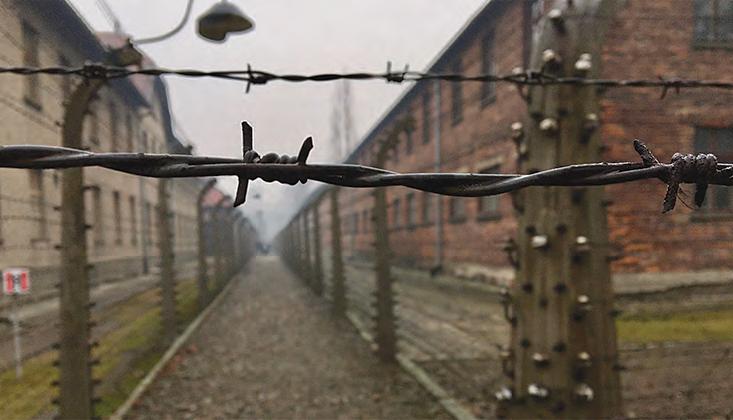
“Respect for victims requires the dignity of silence, not the din of commerce,” Sikorski said on X. He also appealed for artifacts to be handed to the Auschwitz Museum.
Days before cancelling without a statement, the auction house defended its planned sales to the Frankfurter Allgemeine Zeitung, saying that private collectors used the items for “intensive research” and their activity contributed not to “the trade in suffering, but the preservation” of memory.
Titled System of Terror, Vol. II, the catalog showed items dating from 1933 to 1945. The first part of a privately collected trove of Holocaust letters was sold by the auction house six years ago, according to the Frankfurter Allgemeine Zeitung. Many items came from the Auschwitz and Buchenwald concentration camps. A postcard from Auschwitz to Krakow in 1940 had a starting bid of $580, with a listing advertising the prisoner’s “very low inmate number” and their letter’s “very good condition.”
Other listings were expected to fetch much higher sums. A collection of 15 letters by a prisoner in the Ravensbrück camp started at $3,250. Another stash of letters between a Jewish
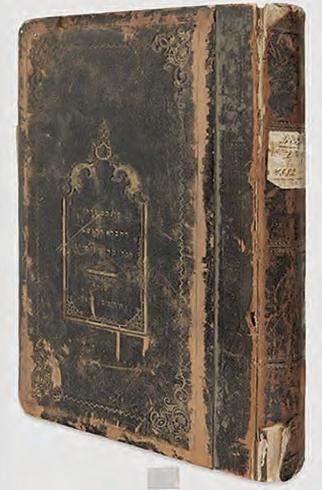
The catalog was also littered with Nazi documents. Among these was a 1937 medical report from the Dachau camp, which detailed the forced sterilization of a prisoner “by the camp doctor” with “the signature of an SS man.” Another listing showed a file by Auschwitz commandant Arthur Liebehenschel, with notes preparing for his post-war trial defense in Krakow in 1947, which the auction house said had not yet been published.
Other documents showed the records of companies forcefully sold to Nazis.
Previous auctions of artifacts linked to Nazi crimes have been canceled in the United States over recent years.
Two 17th-century paintings were taken out of an Ohio auction in September after a Holocaust art restitution organization determined they had been looted from a German Jew’s collection during World War II. In 2023, Christie’s called off the sale of 300 pieces from a jewelry collection belonging to Heidi Horten, whose husband Helmut Horten bought up Jewish businesses forcefully relinquished by their owners in the 1930s. A previous sale in May of 2023 totaled $202 million, making it the largest-ever auction of jewelry. But public pressure on Christie’s continued following that sale, as Holocaust survivors castigated the auction house over the course of months for, in their view, obscuring the legacy of a Nazi businessman and then profiting from his illicit gains. Christie’s acknowledged that it felt the impact of that pressure campaign and said it decided to cancel the sale of an additional 300 items from the Horten jewelry collection.
And in 2021, an auction house in Brooklyn suspended the sale of a 19th-century ledger claimed by a Jewish community in Romania.
“The handwritten register has great value as a historical document, covering over 50 years of the history of the Orthodox Jewish Community, right from the year of the founding of the Society in 1836, but it is also a valuable art object, due to its exceptional aesthetic presentation,” the Jewish community wrote in a statement.The ledger disappeared during the Holocaust and therefore is “stolen property,” the letter said.



For more information, call 1-800-521-0600, ext. 2888 (US) or 01-734-761-4700 (International) www.il.proquest.com
ANNOUNCEMENT
CLASSIFIED ADVERTISING in over 150 newspapers. Reach thousands of readers for $225/25 word ad. Contact your local newspaper or call 1-800-369-2850.
HELLO NEBRASKA! Introducing www.nepublicnotices.com, a new public notice website presented as a public service by all Nebraska newspapers. Free access, fully searchable – because democracy depends upon open government and your right to know.
BANKRUPTCY RELIEF! Help stop Creditor Harassment, Collection Calls, Repossession and Legal Actions! Speak to a Professional Attorney and Get the Help You NEED! Call NOW 844-215-3629
AFFORDABLE PRESS Release service. Send your message to 155 newspapers across Nebraska for one low price! Call 1-800369-2850 or www.nebpress.com for more details.
FOR SALE – CELL PHONE
SWITCH AND save up to $250/year on your talk, text and data. No contract and no hidden fees. Unlimited talk and text with flexible data plans. Premium nationwide coverage. 100% U.S. based customer service. For more information, call 1-877-768-5892
FOR SALE - MEDICAL
PORTABLE OXYGEN Concentrator? May be covered by Medicare! Reclaim independence and mobility with the compact design and long-lasting battery of Inogen One. Free information kit! Call 855-385-3580.
HOME SERVICES
DOES YOUR basement or crawl space need some attention? Call Thrasher Foundation Repair! A permanent solution for waterproofing, failing foundations, sinking concrete and nasty crawl spaces. FREE Inspection & Same Day Estimate. $250 off ANY project with code GET250. Call 1-844-958-3431
THE BATHROOM of your dreams in as little as 1 day. Limited Time Offer - $1000 off or No Payments and No Interest for 18 months for customers who qualify. BCI Bath & Shower. Many options available. Quality materials & professional installation. Senior & Military Discounts Available. Call Today! 1-855-451-2244
WANTED TO BUY
WE BUY 8,000 cars a week. Sell your
JFO Library Specialist
Juvenile:
The Mouse Who Loved Latkes by Joy Nelkin Wieder
When the Katz family moves in, C.J. the mouse is scared. Nibbling jelly doughnut crumbs in the kitchen, he hears a soft voice say, "Hello." The Katz family is spinning a dreidel and eating chocolate coins. It looks like fun, but a mouse can't play with cats! "Hello again," says the soft voice. "Please don't go. I could use a friend." Can C.J. overcome his fear and make some new friends just in time for Hanukkah?
Adult:
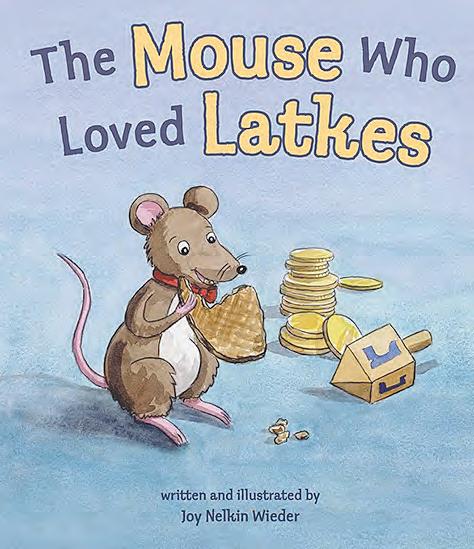

Missing Pages by Alyson Richman
1912: Harry Widener, a promising and passionate book collector, boards the Titanic holding tight to a priceless volume he’s just purchased in London. After catastrophe strikes the ship, Harry’s last known words are that he must return to his cabin to retrieve his latest treasure. Neither the young man nor the book are ever seen again. Honoring her son’s memory, Harry’s mother builds the Harry Widener Memorial Library at Harvard to house his extensive book collection and ensure his legacy. Decades later, Violet Hutchins, a Harvard sophomore recovering from her own great loss, is working as a page at the
Widener Library. When mysterious things begin happening at the library, Violet wonders if Harry Widener’s ghost is trying to

communicate with her, seeking Violet to uncover a long-buried secret that the ardent young Harry took with him to the grave.

Autocorrect: Stories by Etgar Keret
Set in our world, alternate realities, distant futures, and the immortal realm, the stories in Autocorrect traverse the wide range of human experience. With wit and creativity, Keret
blends the absurd and the profound, juxtaposing life's smallest details with weighty existential questions. A man names an asteroid after his wife only to find that it's on a collision course with Earth in "For the Woman Who Has Everything." In "Squirrels," a widower's husband reincarnates as a rodent, and "Eating Olives at the End of the World" considers proper social etiquette in the face of destruction. Keret's collection speaks to the uncertainty and fragility of our time, expertly capturing its misunderstandings and miscommunications. His stories probe society's uncomfortable truths, searching for meaning in our everchanging world.

